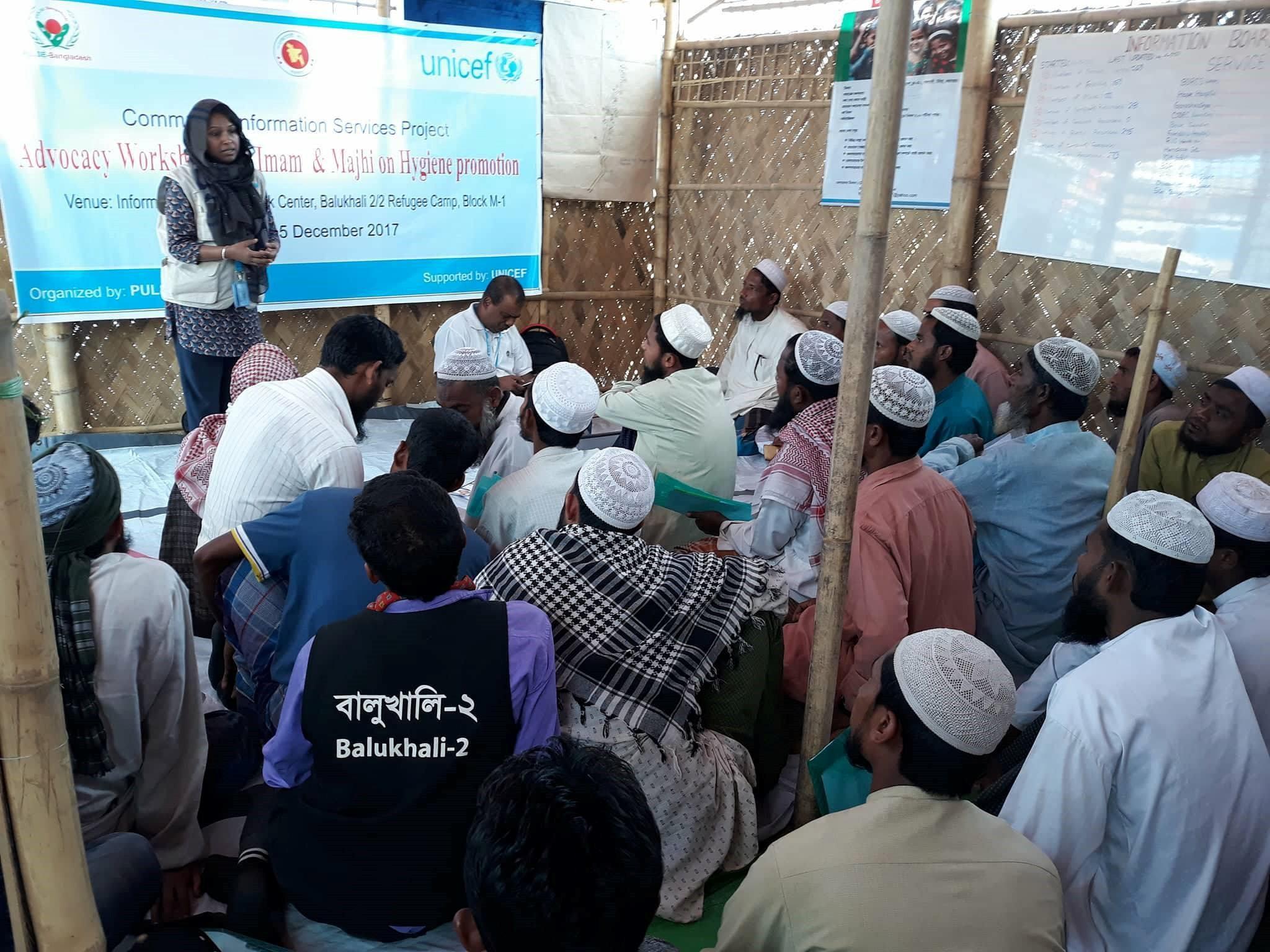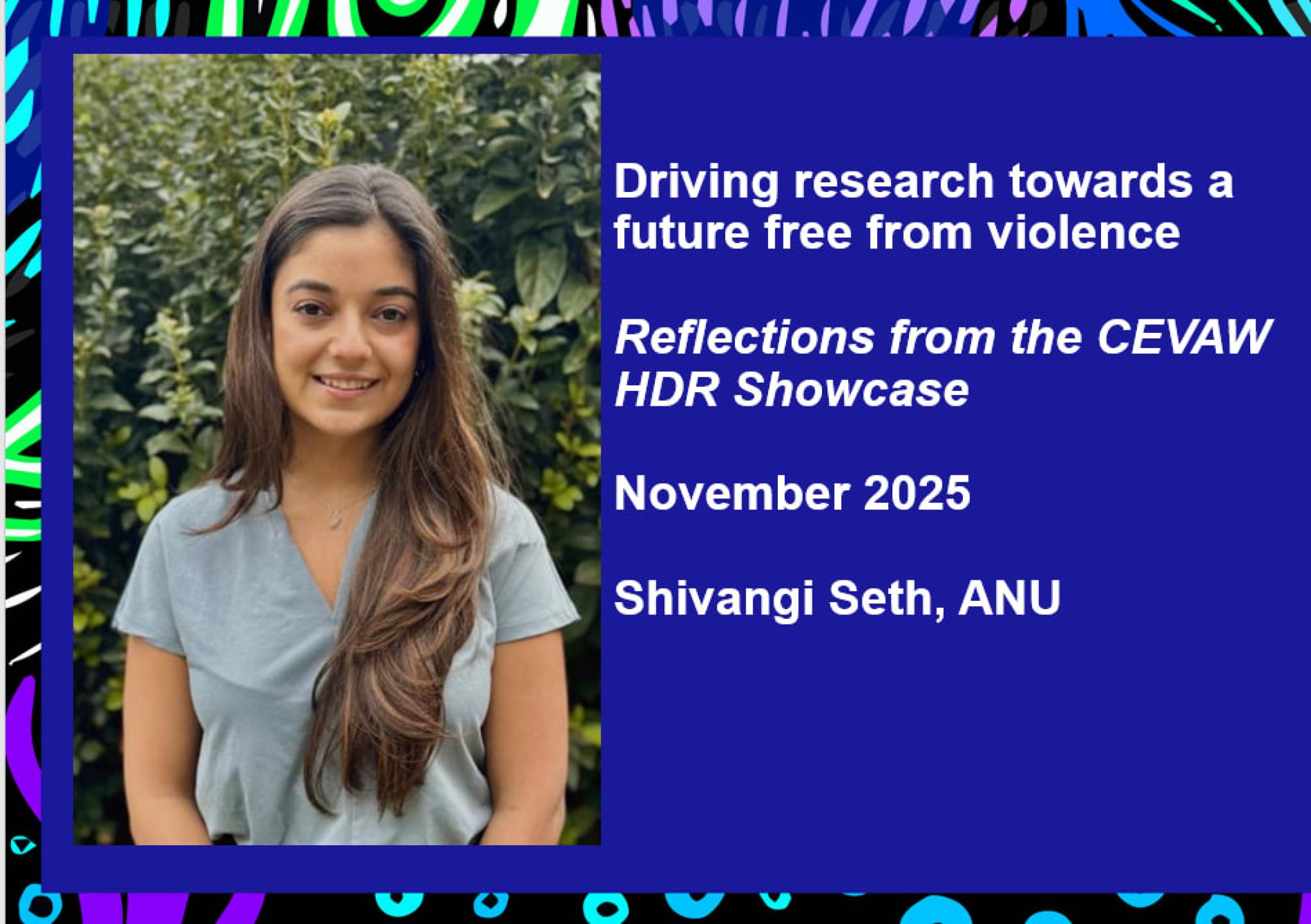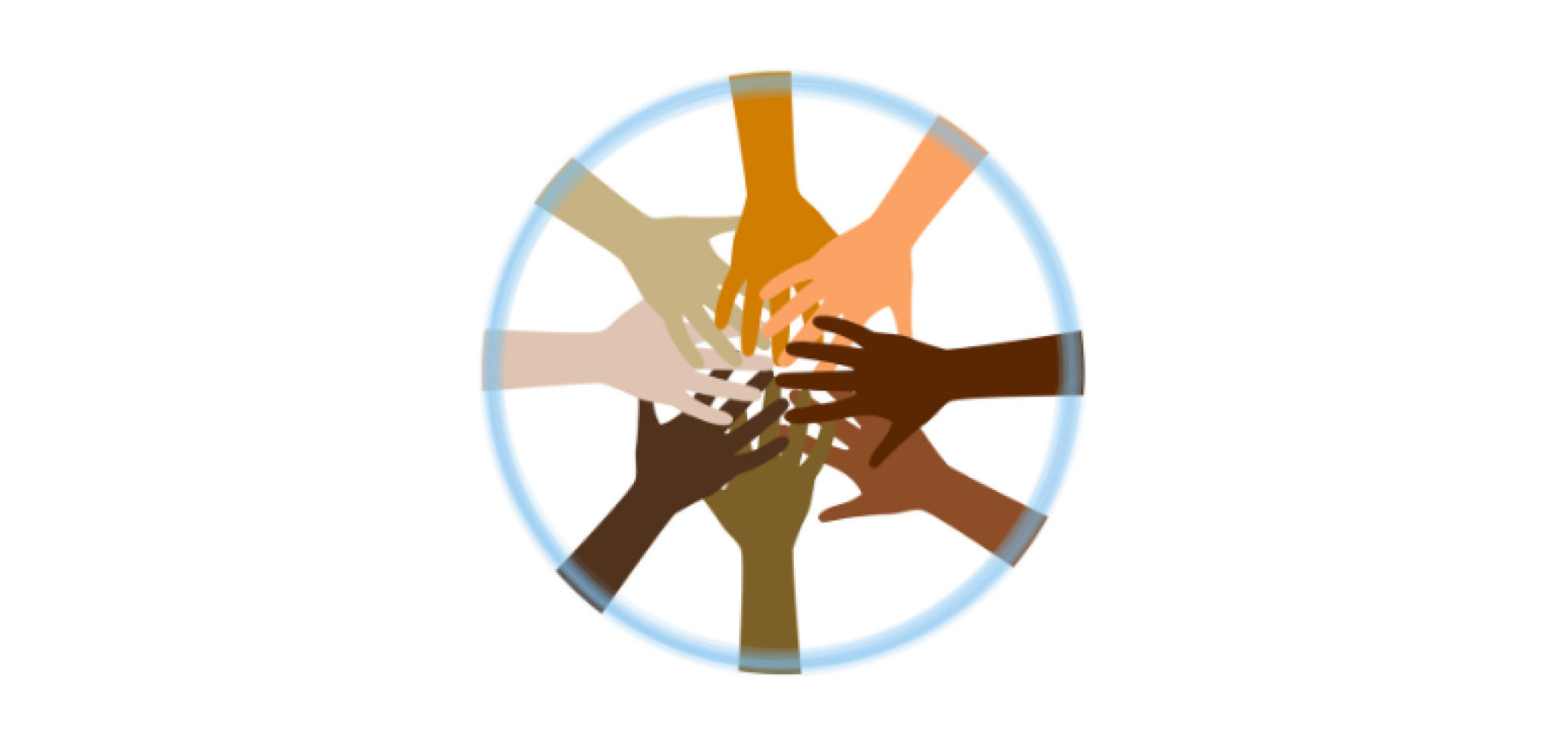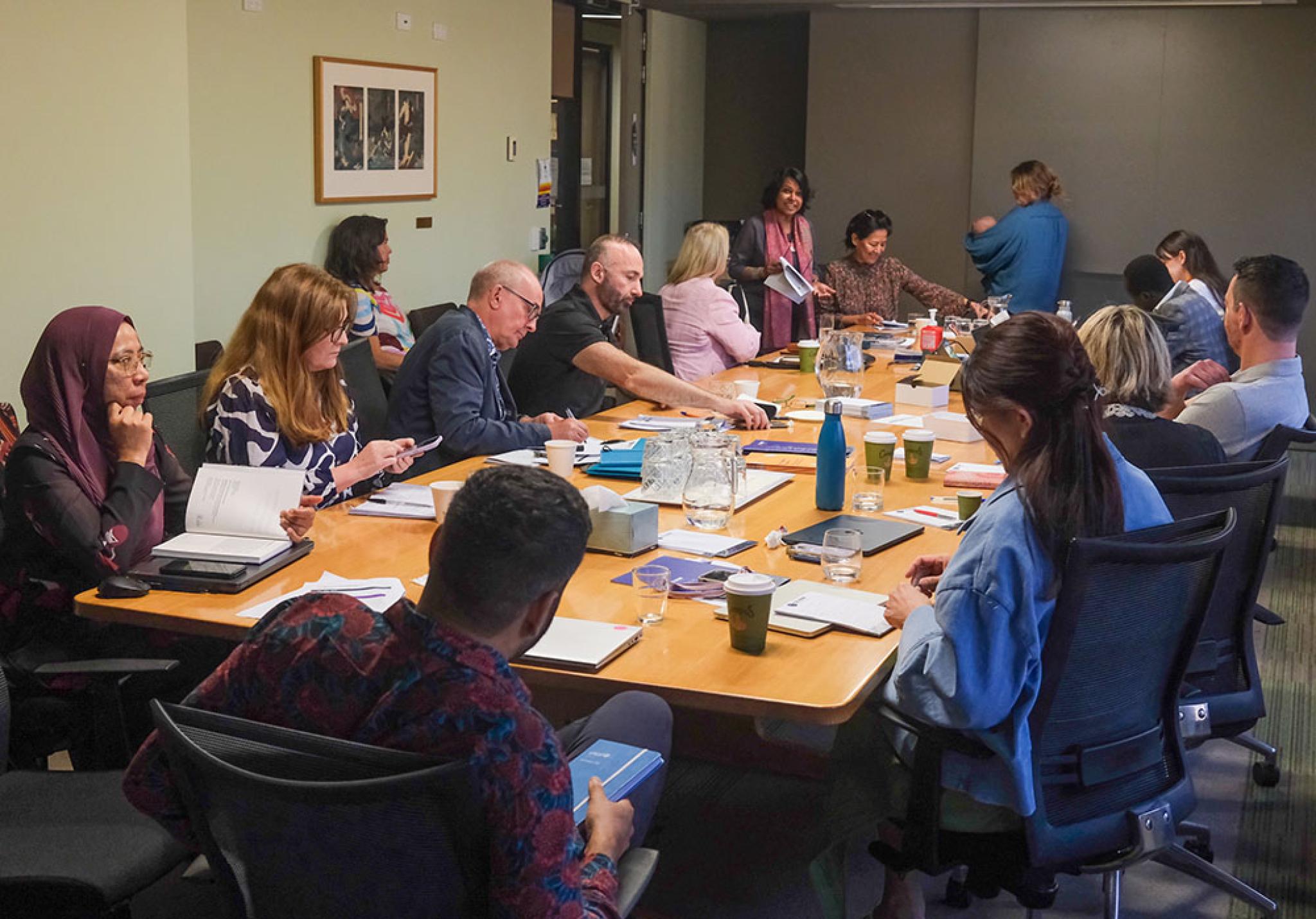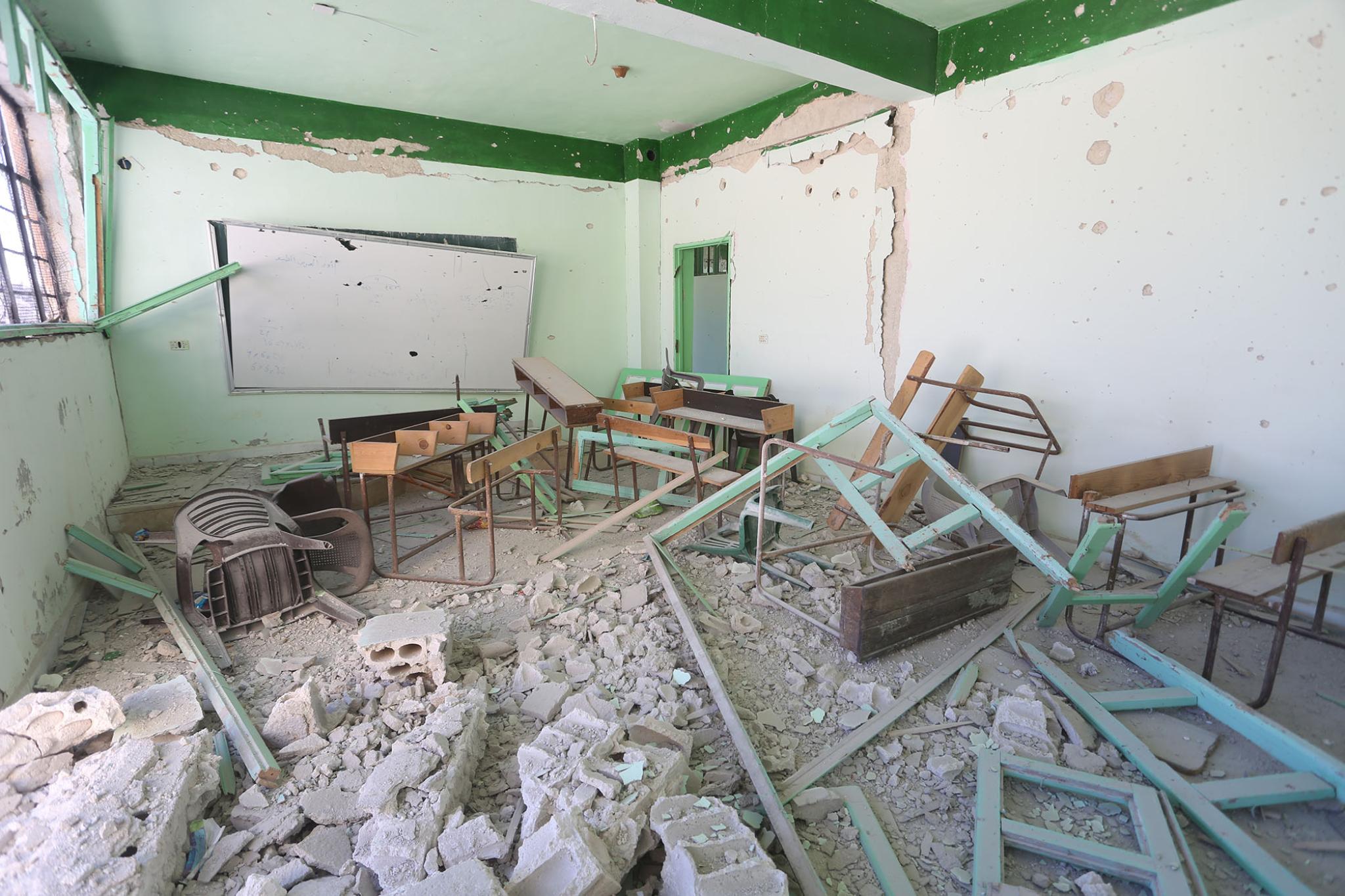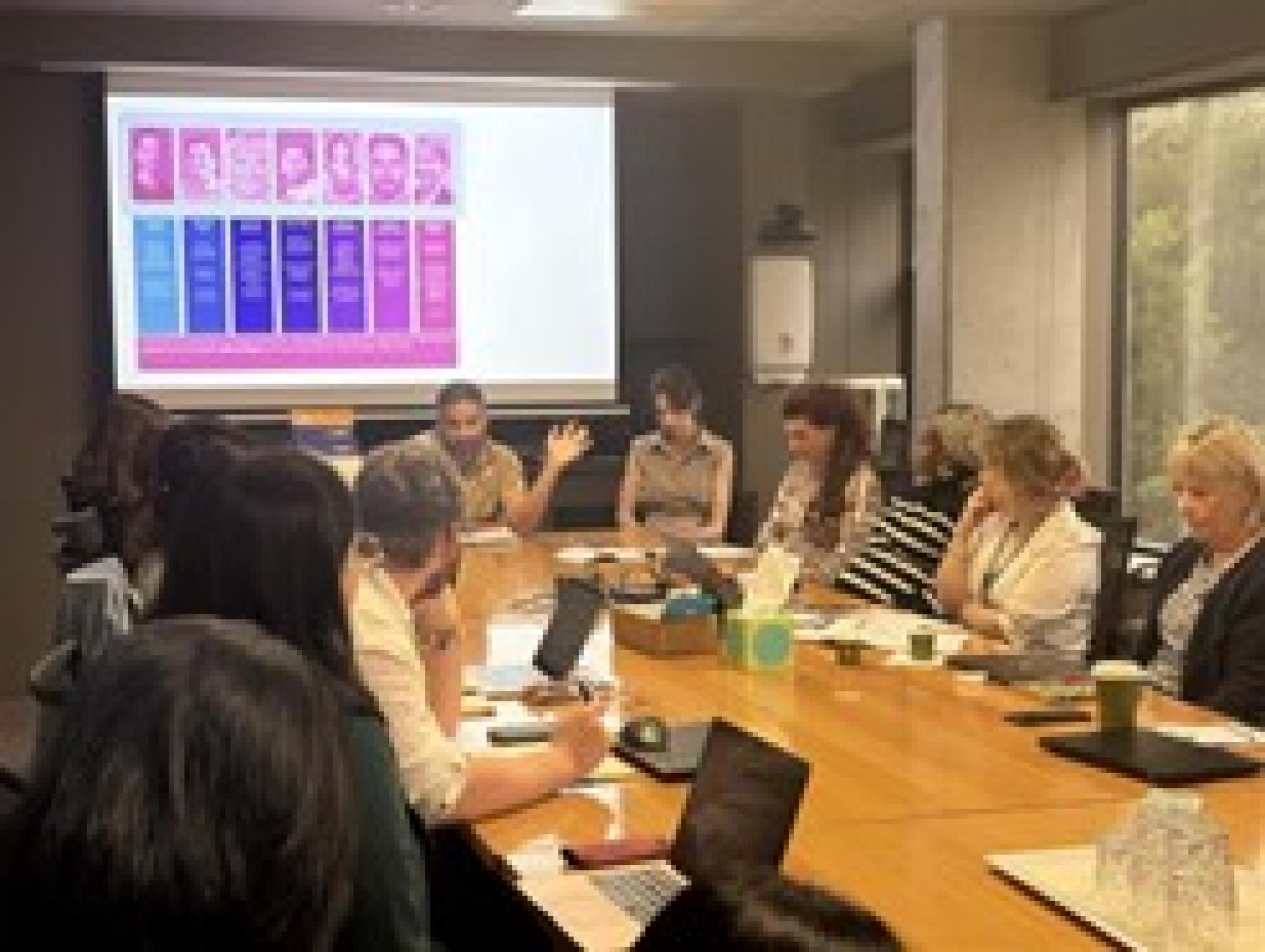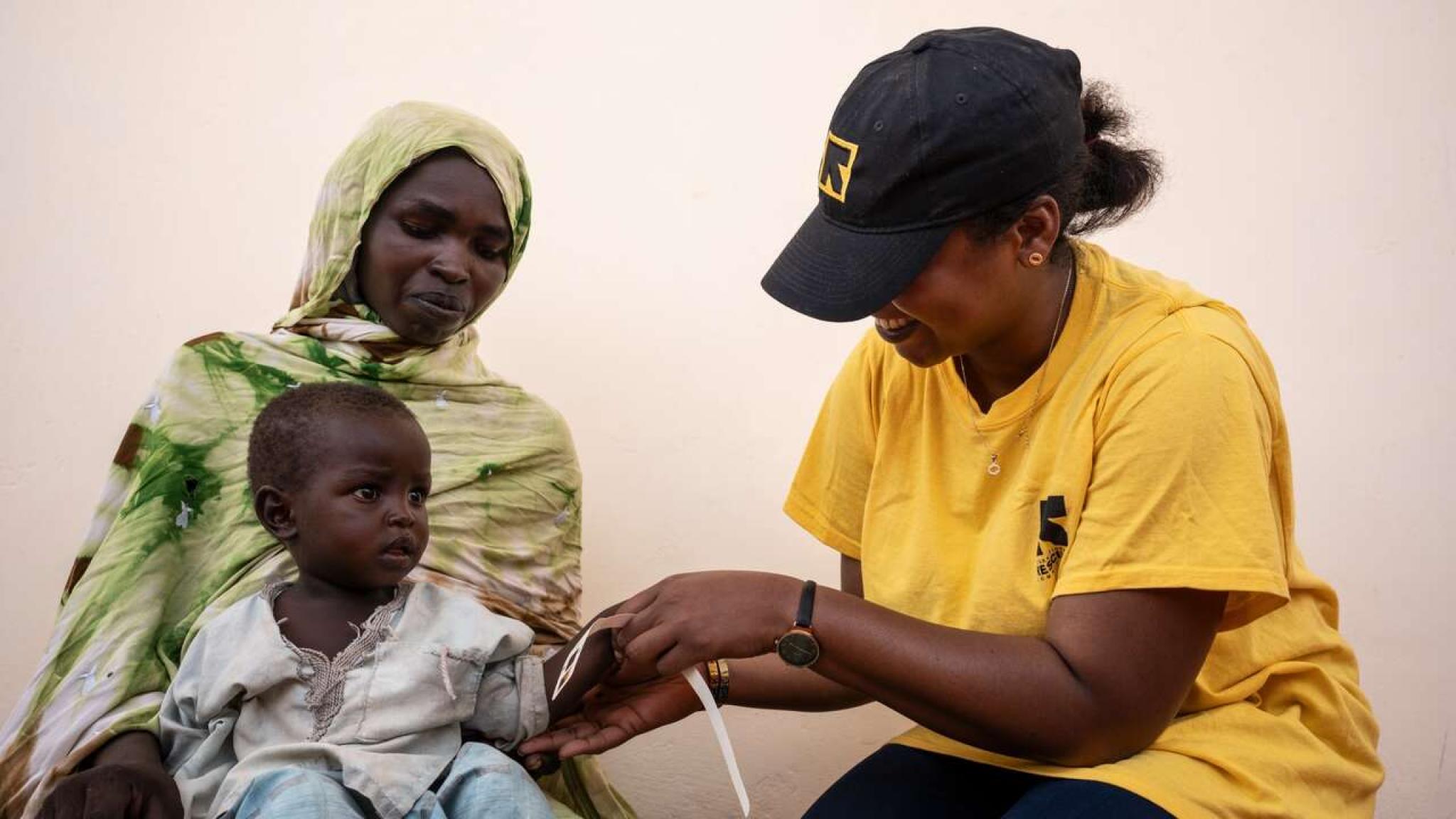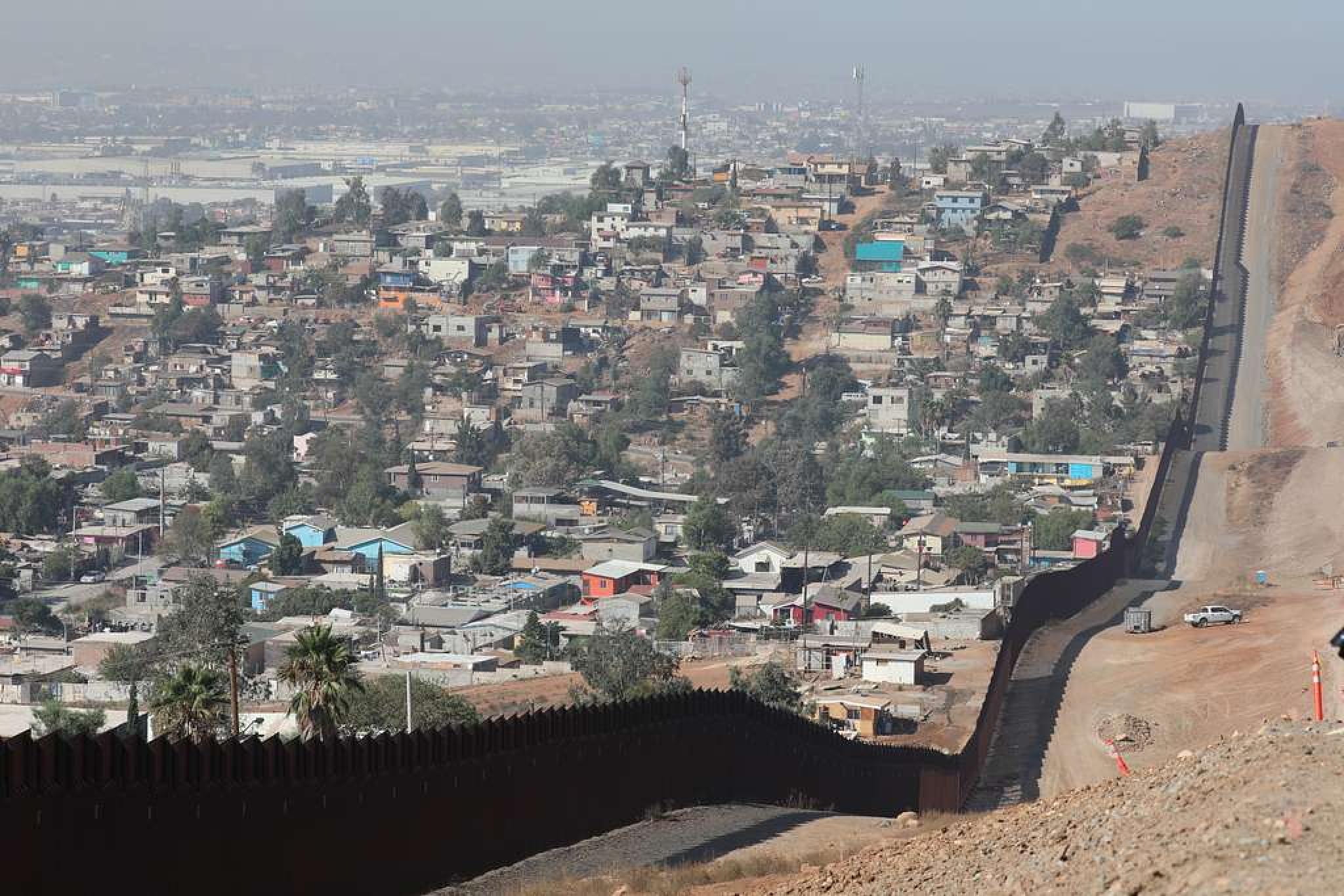ARC Future Fellowship, ANU
These projects collectively are building knowledge of complex contexts of displacement and violence and the ways humanitarian and child protection efforts seek to assist.
Centring collaborative and feminist methodologies that are sensitive to gender, trauma, and age these ambitious initiatives will help understand what drives change in the Global South, what works to prevent violence against women in Asia and the Pacific, how such change is communicated and shared and the impacts on refugee and migrant lives. Read more about how this interdisciplinary research is informing policy and practice through valued sector partnerships, community engagement and Australian National University’s contribution to the Centre for Excellence on the Elimination of Violence Against Women.
Research updates on this page include those supported by various projects and grants, including funding awards from the Australian Research Council. The views expressed are those of the authors alone and do not represent the views of the Australian Government, The Australian National University, or any other institution. Any queries or feedback can be emailed to cevaw@anu.edu.au
Humanitarian Emergencies and Global South Responses to Children's Displacement
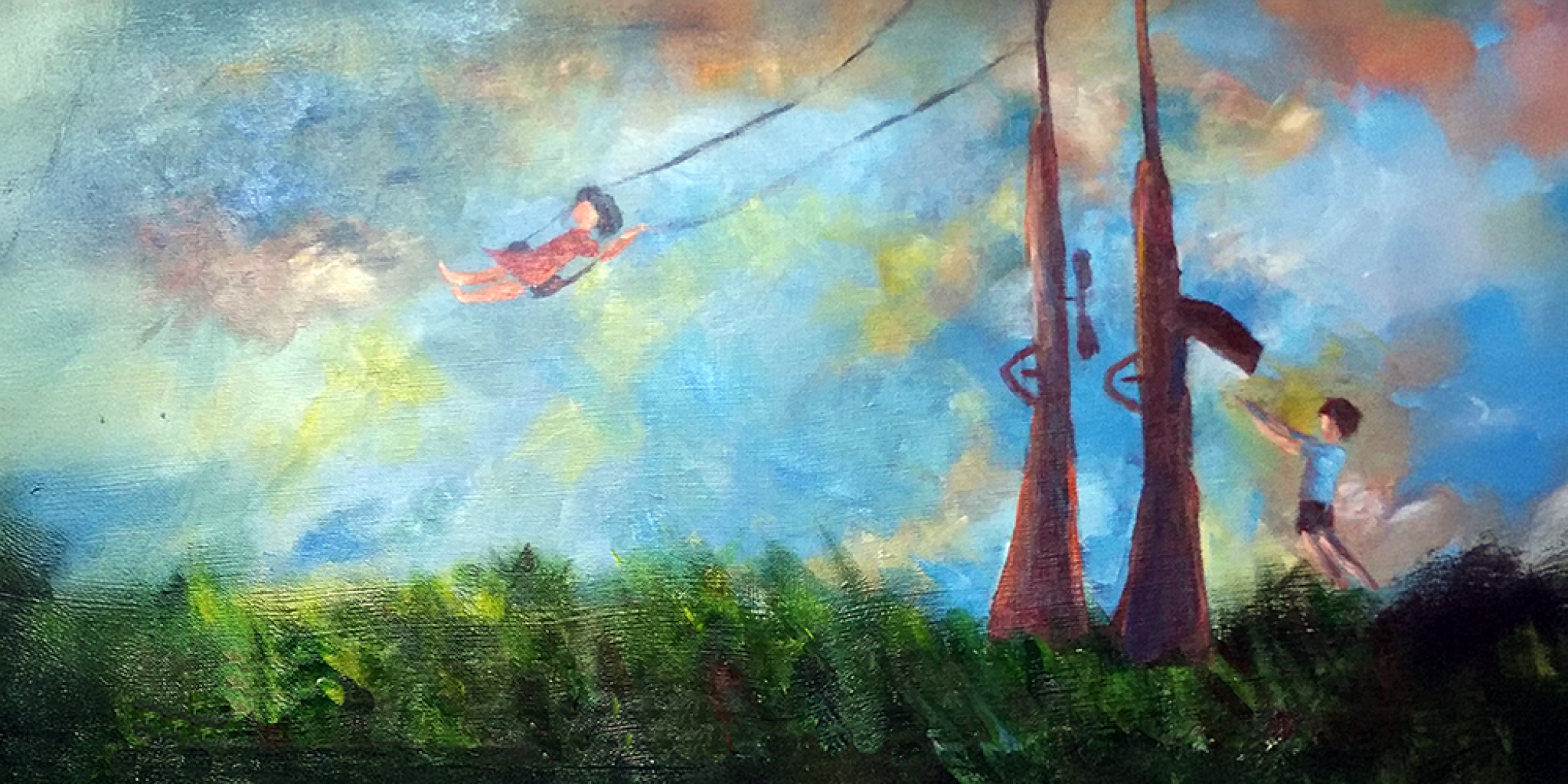
Elimination of Violence Against Women
ARC Centre of Excellence for the Elimination of Violence Against Women (CEVAW)
Visualising Humanitarian Crises
Transforming Images and Aid Policy
ARC Linkage Project, University of Queensland
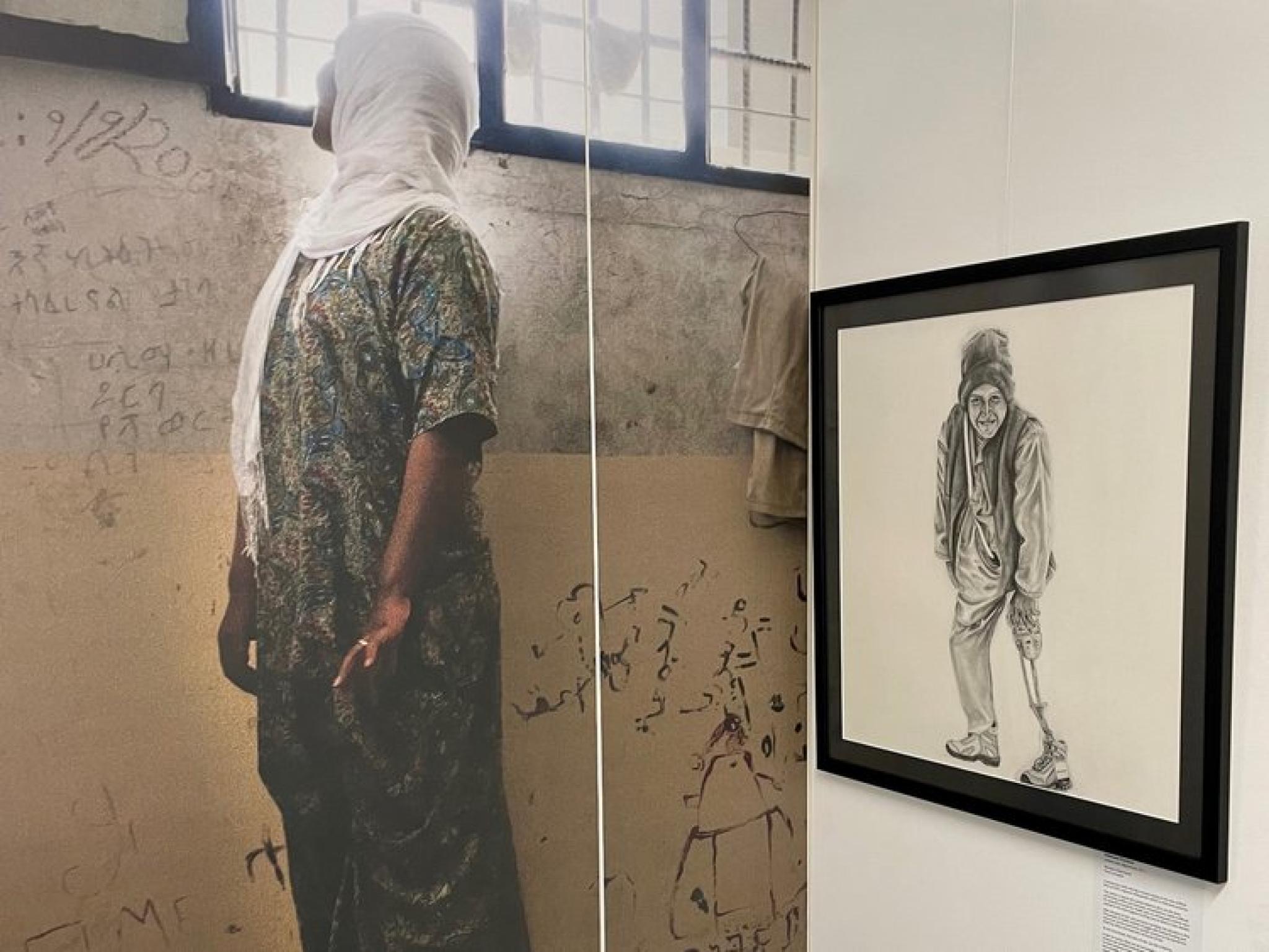
Peace, Conflict, and Memory in the Philippines: A Workshop with Mindanao State University and ANU
(September 2025)
This August, Professor Bina D’Costa visited Mindanao and the Mindanao State University of the Philippines, as part of a series of activities that are deepening research relationships with ANU and ARC Centre of Excellence (CEVAW) that explores issues related to violence prevention, displacement, child protection and peacebuilding.
Partnership discussions extended beyond Mindanao State University, to women’s groups, including women MPs/ in political office in Southeast Asia – with plans to work together in CEVAW research uptake across the region, including around the soon to be launched CEVAW Women Safety Index and Database.
Discussions engaged Acting Mayor Governor-elect Juliette Uy and Princess Emano from Misamis Oriental’s Second District and the National Unity Party. There was a particular focus on women with disability and gendered violence and ambitions within Contexts | CEVAW pillar, led by Sara Davies at Griffith University and together with ANU and Thammasat University partners.
Together with OHCHR, Bina was also accompanied by a Senior Fellow on People of African Descent in the Philippines for a scoping visit, including in Pampanga with community previously displaced by mountain eruptions and to meet with the Pagkakaisa ng mga Ayta/Katutubo sa Camias (Unity of the Aeta/Indigenous Peoples in Camias) on importance and workings of Indigenous approaches and methodologies.
In addition Bina provided reflections as a speaker at launch of Dr. Primitivo III “Prime” Cabanes Ragandang’s new book: Peacebuilding and Memory in the Philippines: Transgenerational Resilience. Dr. Ragandang’s completed his PhD at the Coral Bell School, at ANU. His work problematizes ayóm-ayóm (ayóm-ayóm political order is a Binisaya concept which means using local and readily available resources to make something work) as resilience within peace and conflict studies.
A half day research workshop with Mindanao’s early career researchers was also facilitated with support from the ANU Philippines Institute.
Images: Tagalong Municipal Information Centre
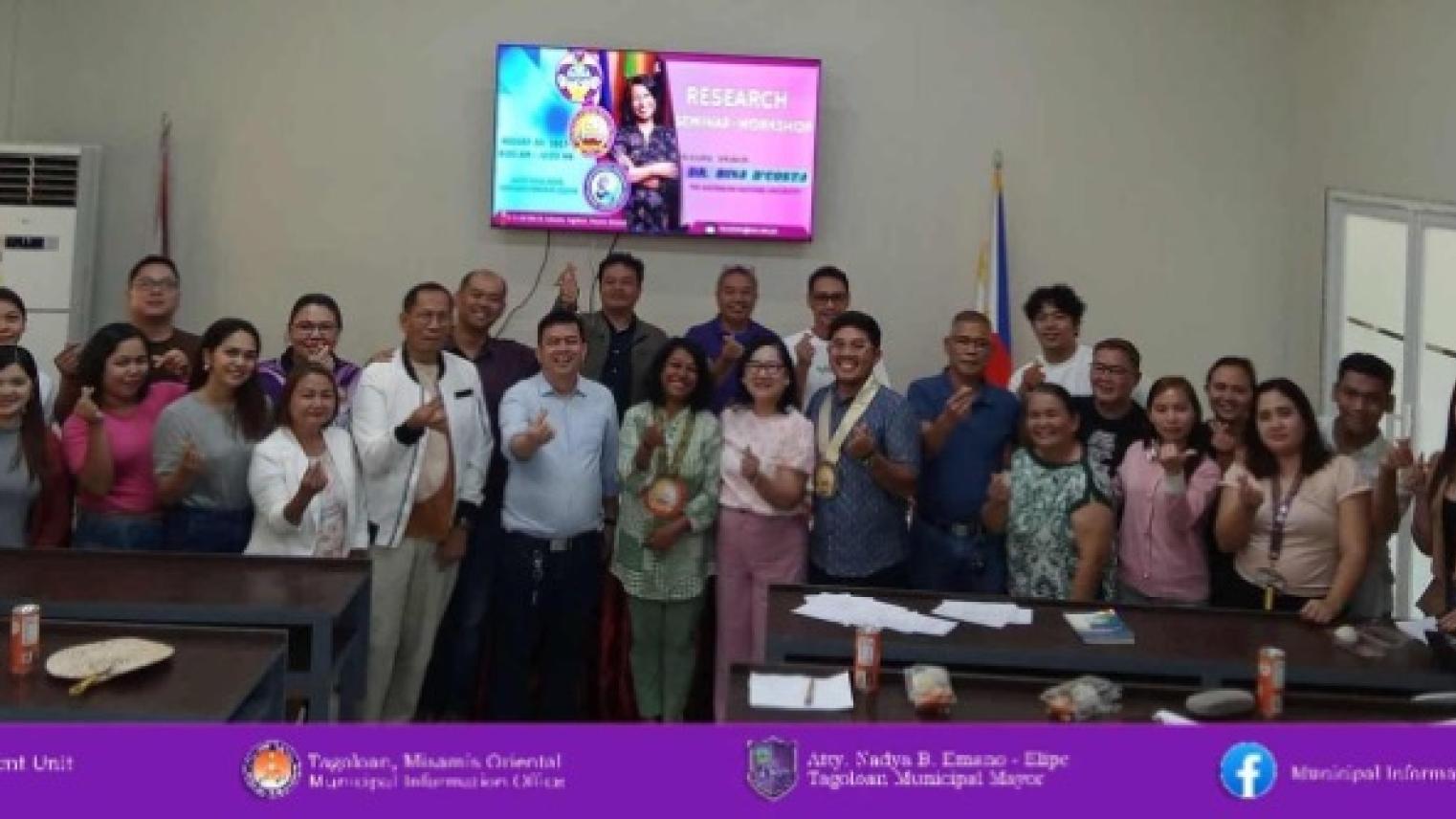
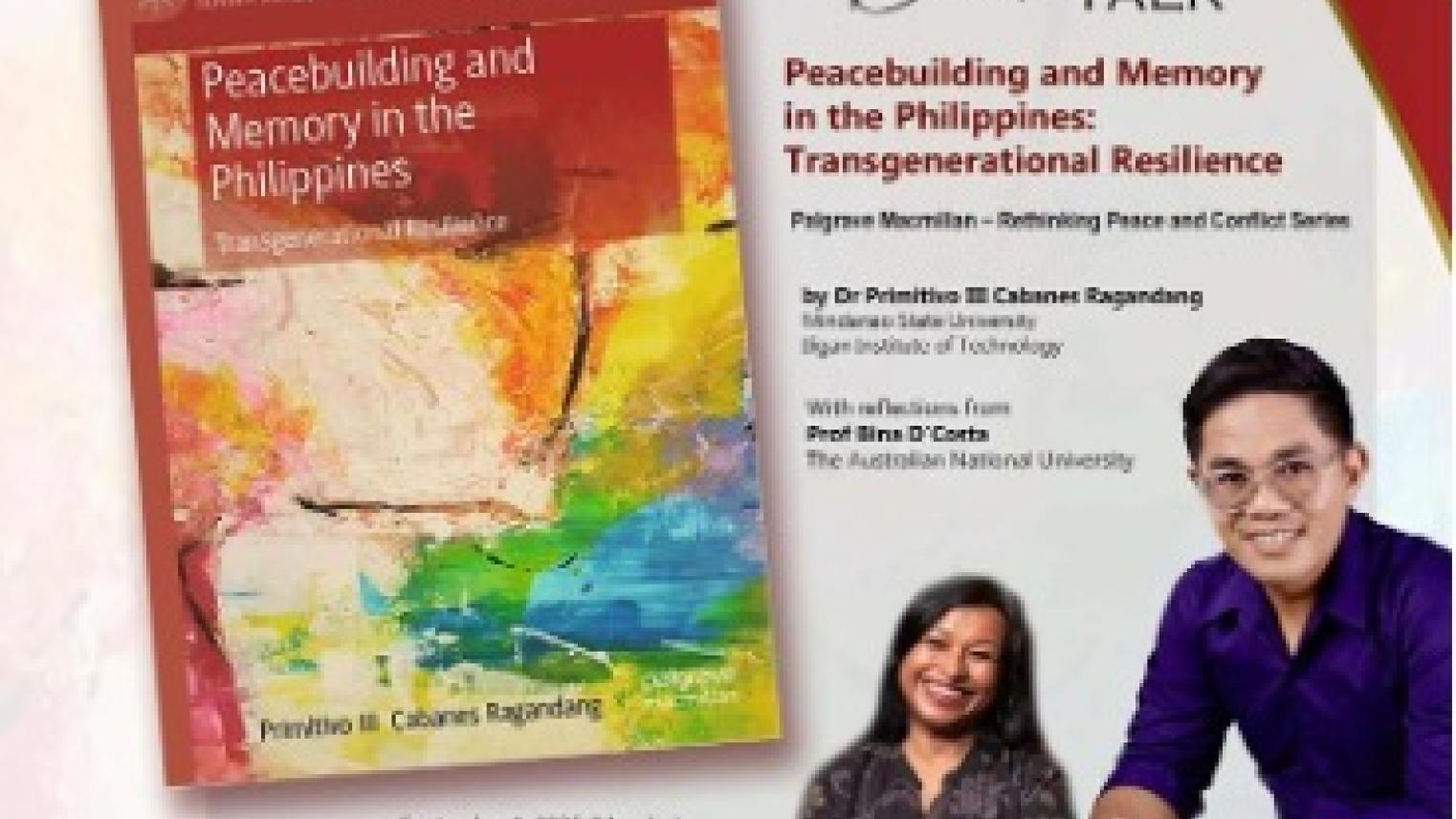
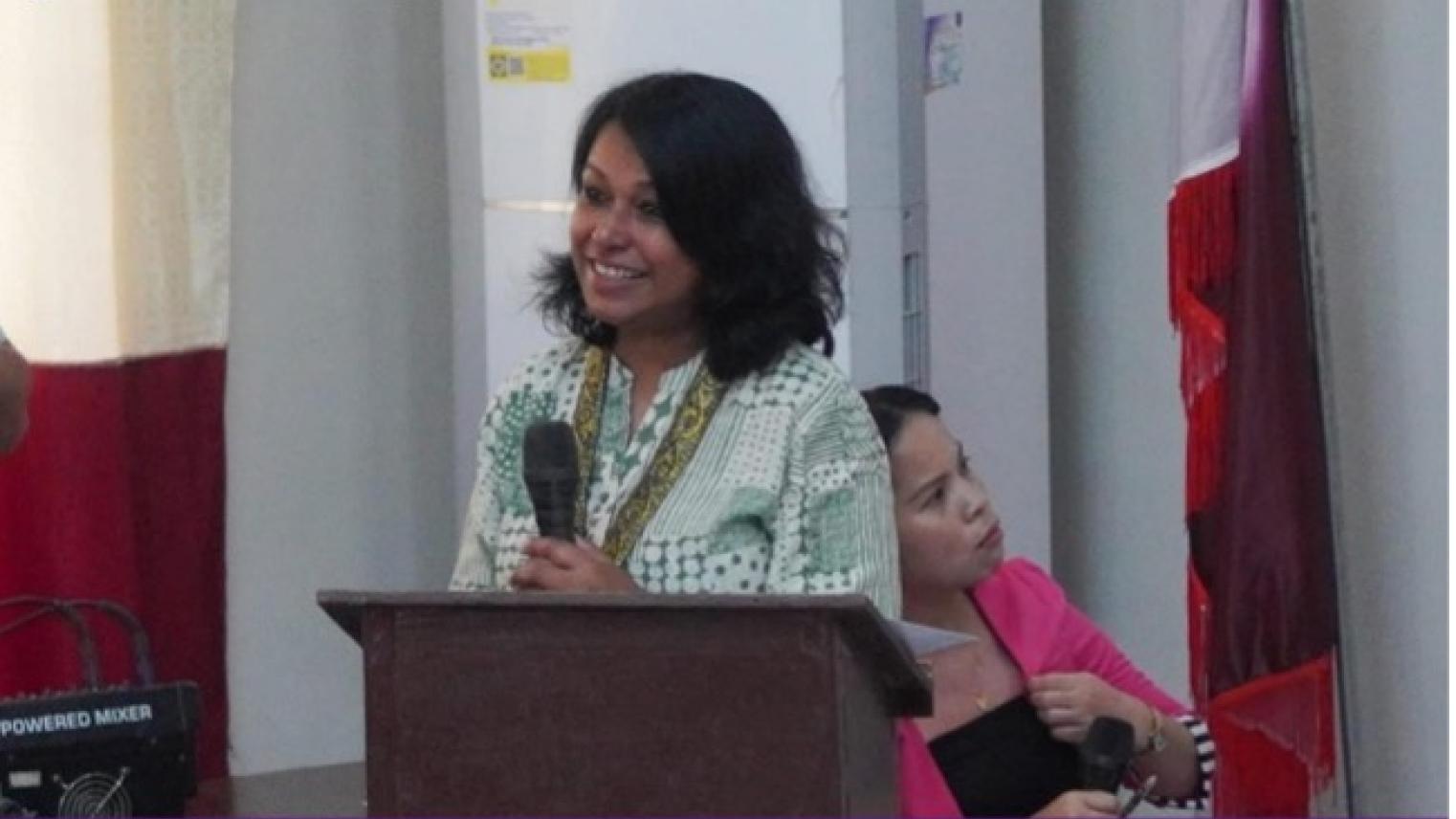
Journey to Justice: Recognition, Compensation and Rehabilitation for Survivors of Sexual Violence in Bangladesh
(August 2025)
From Struggle to Justice: Intersecting Histories, Conflict-Related Sexual Violence, and Reparative Pathways for Birangonas in Bangladesh
This roundtable, lead by Professor Bina D’Costa, brings together global transitional justice experts and human rights defenders to examine reparations for survivors of conflict-related sexual violence (CRSV), with a focus on feminist and survivor-centred frameworks. Using Bangladesh’s experience with Birangona survivors of the 1971 Liberation War as a case study, the discussion explores how historical silencing, political instrumentalisation, and delayed recognition shape justice efforts, including for Rohingya women in Cox’s Bazar and women of the July resistance in 2024. The panelists reflected on comparative models, including truth commissions, reparations programs, and legal advocacy, to identify inclusive and transformative pathways. The session aimed to generate cross-contextual learnings that centre survivor agency, challenge gendered erasure, and reimagine reparative justice through feminist praxis.
Drawing on a recent two -year collaborative research undertaken by BLAST, Naripokkho, REDRESS, and the Global Survivors Fund, and grounded in survivor testimonies and legal analysis, the roundtable investigated gaps in recognition and reparation for Birangonas. It highlighted opportunities to build inclusive, participant-driven approaches that prioritise dignity, agency, and meaningful redress. This research project reframed CRSV as a core dimension of transitional justice in Bangladesh and offers insights applicable to global contexts of post-conflict healing. The roundtable was hosted at the Bishwo Shahitto Kendro (World Literature Center) বিশ্বসাহিত্য কেন্দ্র

Research-led policy advocacy: linking grassroots with NSW Minister for Women
(15 April 2025) Connecting grassroots understanding with positions of power can help make for better policy response – connecting community-based research findings across various scales.
Dr Zoe Bell (ANU/CEVAW) presented evaluation findings and discussed how best to tackle violence against women and the value of community-based research as part of a roundtable with the Hon. Jodie Minister Harrison: Minister for Women, Minister for Seniors, and Minister for the Prevention of Domestic Violence and Sexual Assault.
Minister Harrison was briefed on the evaluation of the 'Me, Myself and I' program — a CALD domestic and family violence community awareness initiative. Around the table in Lakemba, NSW were community members and leaders from the Urdu speaking and Rohingya community including from ARWDO, Jannawi Family Centre, and Canterbury City Community Centre.
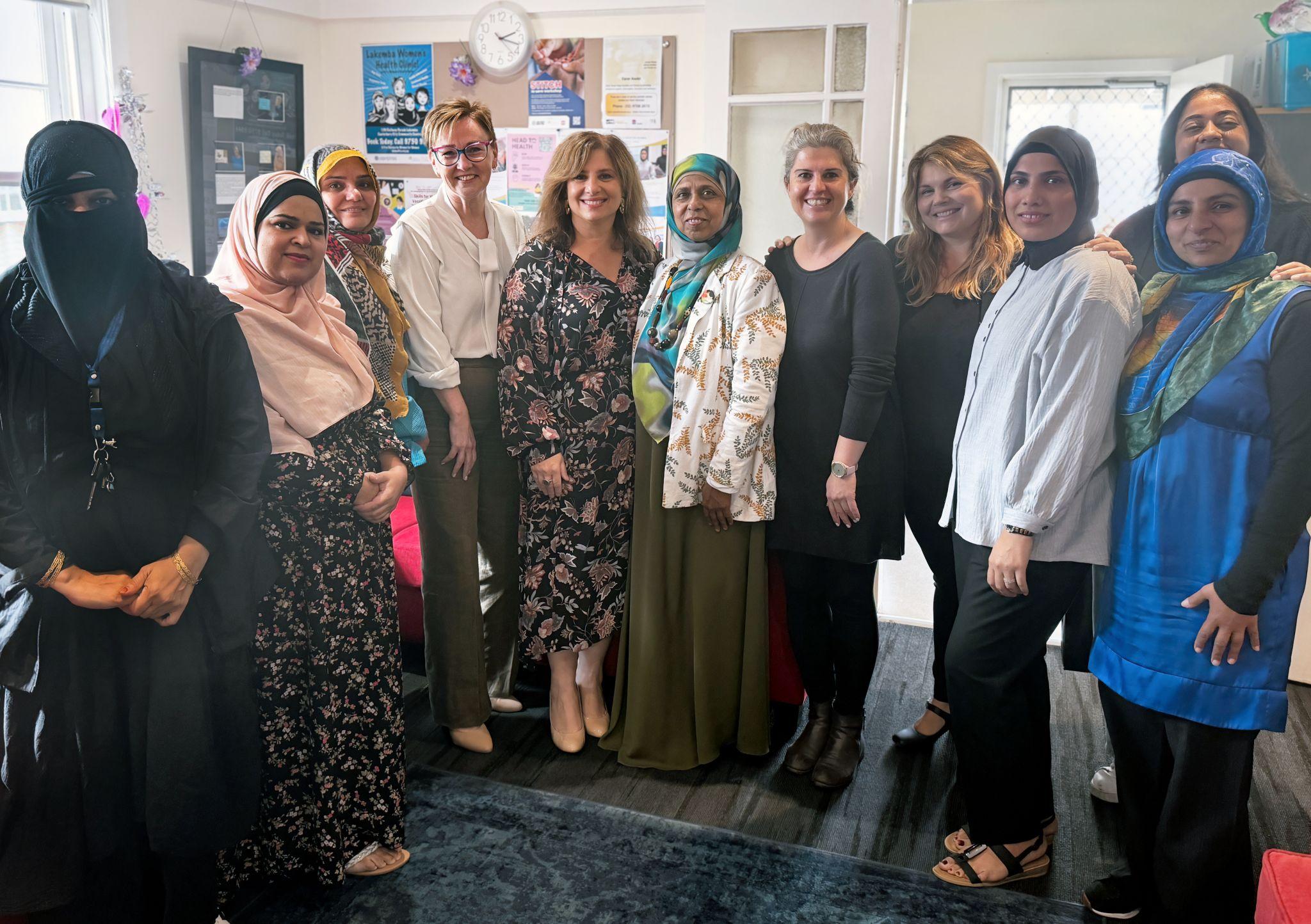
“We brought together people who are all deeply committed to addressing domestic, family and sexual violence in culturally safe ways. The Me, Myself and I program evaluation shows over 90% engagement and satisfaction rates — a testament to it being co-designed and evaluated as it was delivered. The findings make it clear: when safe spaces are available, communities thrive. We are honoured that 4Cs is seen as a safe place by many women and families”,
said Esta Paschalidis-Chilas, CEO (story and quote previously shared by: Canterbury City Council press).
Displacement, Violence and Protection: an ongoing multi-disciplinary conversation
(March 2025) Bringing practitioners and scholars working on displacement and protection together in an academic space was powerful – allowing many services providing partners to step out of often predictable agency positions and discuss openly and creatively about extreme vulnerability in situations of forced migration and humanitarian response.
A series of events was hosted by ANU on the traditional land of the Ngunnawal and Namburi peoples that uniquely brought together international scholars from around the world, including First Nations academics and leading crisis response practitioners working in humanitarian protection, women’s, and children’s rights. The events included an ECR/HRD workshop convened by Michelle Godwin and Bina D’Costa, an interactive photo exhibition in partnership with ICRC, University of Queensland and the Myanmar Research Centre. Remarkable discussions across methodologies, the changing aid landscapes, current world crises and different responses to displacement and gender-based violence will now be taken forward and captured in various publications, short essays, and media with the view to inform research-led policy and advocacy. A network of dedicated displacement and protection specialists will be fostered moving forward, including forthcoming applicants to CEVAW’s membership.
The series of events was convened by CEVAW Chief Investigator Professor Bina D’Costa and team Research Manager Michelle Godwin. The events sit at the intersection of several research projects supported by the Australian Research Council (ARC) at the Coral Bell School of Asia Pacific Affairs (ANU), led by Professor D’Costa. These projects seek to understand Children's Displacement and Humanitarian Protection in the Global South (Future Fellowship) and engage the research stream on Migration and Trafficking situations at the Centre of Excellence on the Elimination of Violence Against Women (CEVAW), where a focus on the different contexts in which violence occurs is being examined.
The workshop also drew in expertise assembled in the Visualising Humanitarian Crises: Transforming Images and Aid Policy Project, as well as support from the ANU Myanmar Research Centre (MRC) and Girls Run the World.
CEVAW contributors included:
- CEVAW Cis: Professors Bina D’Costa (ANU), Patrick O’Leary (Griffith)
- CEVAW Professional Staff/Affiliate: Michelle Godwin (ANU)
- CEVAW Fellows: Dr. Zoe Bell (ANU), Dr. Phyu Phyu Oo (Griffith)
- CEVAW Current Associate Investigators: Professors Rebecca Monson (ANU), Kirsten Ainley (ANU), Asmi Wood (ANU), Nick Cheesman (MRC)
- CEVAW Partner Investigators: Dr. Amporn Marddent (Thammasat University)
- CEVAW Current Affiliates: Dr. Binota Dhamai (ANU), Ms. Elayn Sammon (Independent), Mr. Anthony Nolan (International Rescue Committee), Ms. Masumi Yamashima (Tsunagu), Ms. Parboti Roy (British Colombia University)
- CEVAW Partner organisations: ActionAid Australia, Thammasat University
See the full write-up: Violence, Displacement, Protection | CEVAW.
Photos: 1) Workshop group photo. 2) A panel with Bina D’Costa, visiting and local First Nations, and other scholars followed on taking up the call to “move beyond acknowledgement”. 3) Welcome to Country, Paul Girrawah House in a moving ceremony that honoured women's leadership and his mum - Gambri-Kamberri Walgalu, Wallabalooa (Ngunnawal) and Wiradyuri Elder, Dr Matilda House.
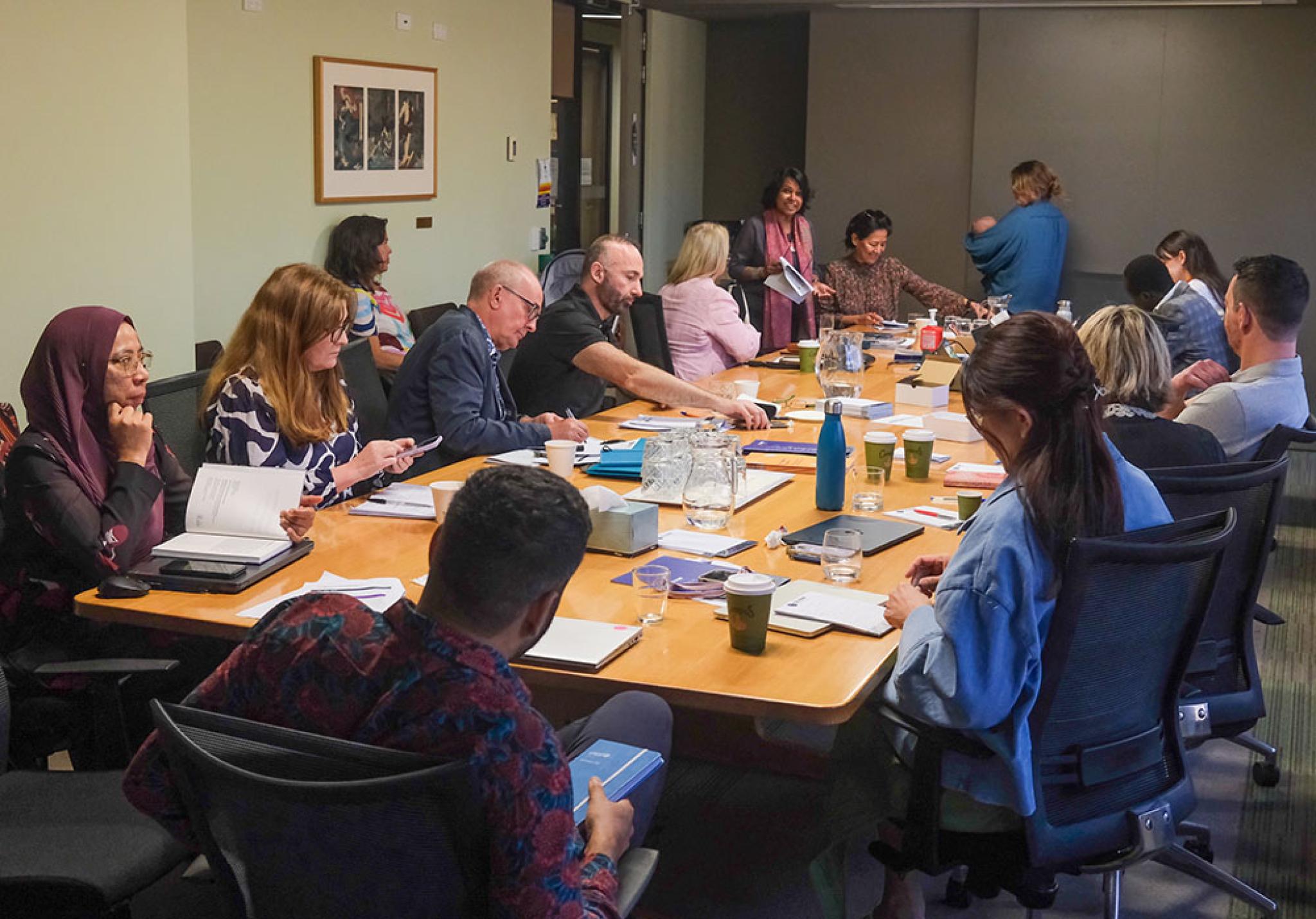
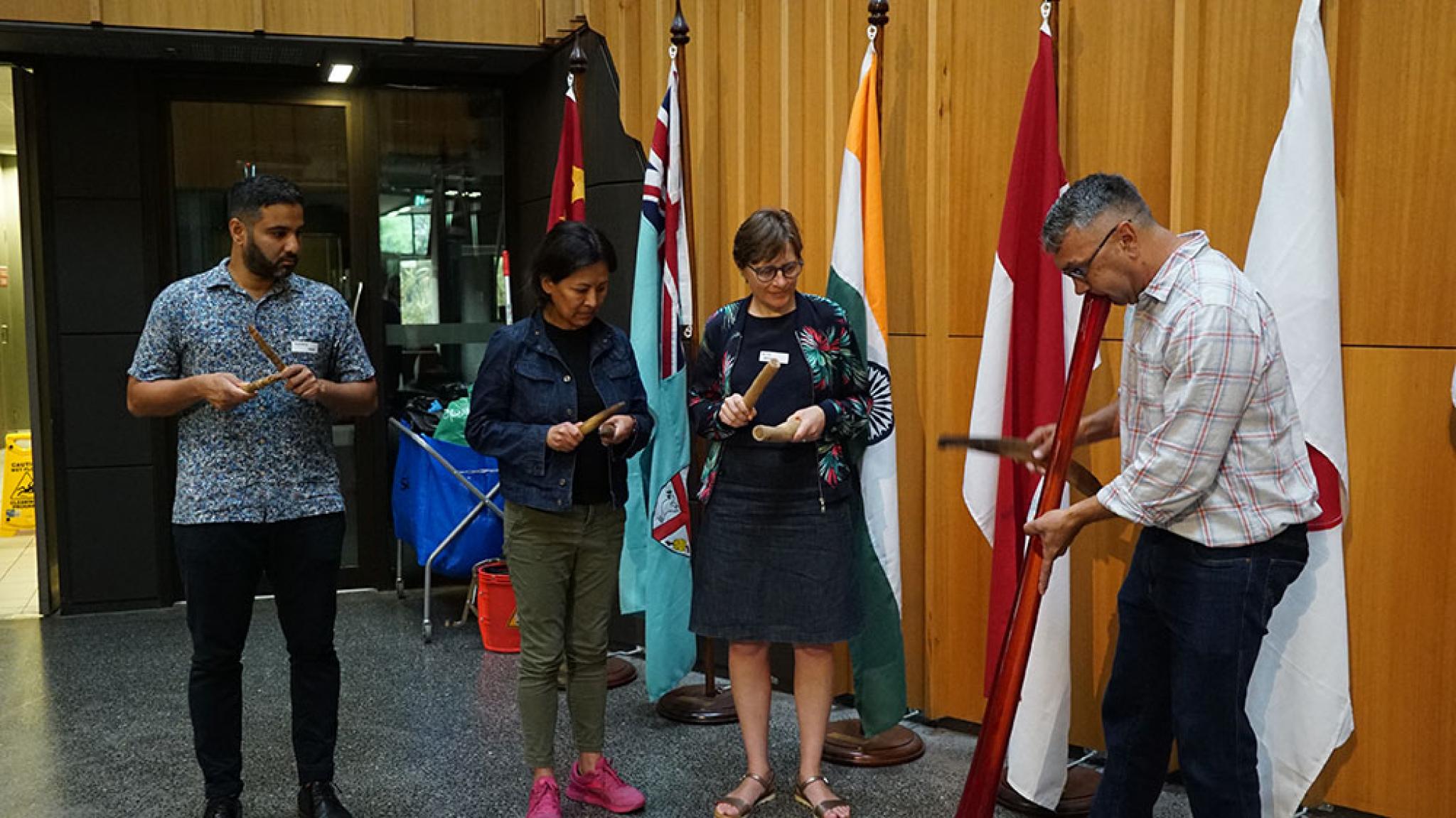
Toward Alternative Humanitarian Visuals? An Exhibition
(March 2025) Together with University of Queensland and ICRC, ANU held a photographic exhibition Towards Alternative Humanitarian Visuals?. The exhibition curated photographic works from three previous ICRC exhibitions that share stories of resilience amid warfare in the highlands of PNG, display portraits from landmine affected countries, and visualise the impact of armed violence in Afghanistan, Colombia, the Democratic Republic of Congo, Georgia, Haiti, Lebanon, Liberia and the Philippines.
The collection asks us to consider what balance is required between showing devastating truths, beauty, individual dignity, identity, consent, and humanitarian response activities. When eliciting human connection for action, we are invited to pay attention to our own emotions and related responses, such as shock, solidarity, indifference, responsibility, and care. We know that humanitarian images have often foregrounded suffering. How can we provide more complex visualisations that also show complexity and ensure collaboration, and protection?
Celebrating the life of Associate Professor Emma Hutchison – whose pathbreaking work was critical to the Visualising Humanitarian Crises project, a reception was held to open the exhibition. Contributions were given from Samuel Barasi (ICRC), Roland Bleiker (UQ), Bina D’Costa (ANU), Amporn Marddent (Thammasat University), Gabriella Sanchez (Georgetown University), Michelle Heiglin (ActionAid), Jeremy Shusterman (UNICEF), as well as the Myanmar Research Centre, Girls Run the World, CEVAW, and the Coral Bell School of Asia Pacific Affairs, among others.

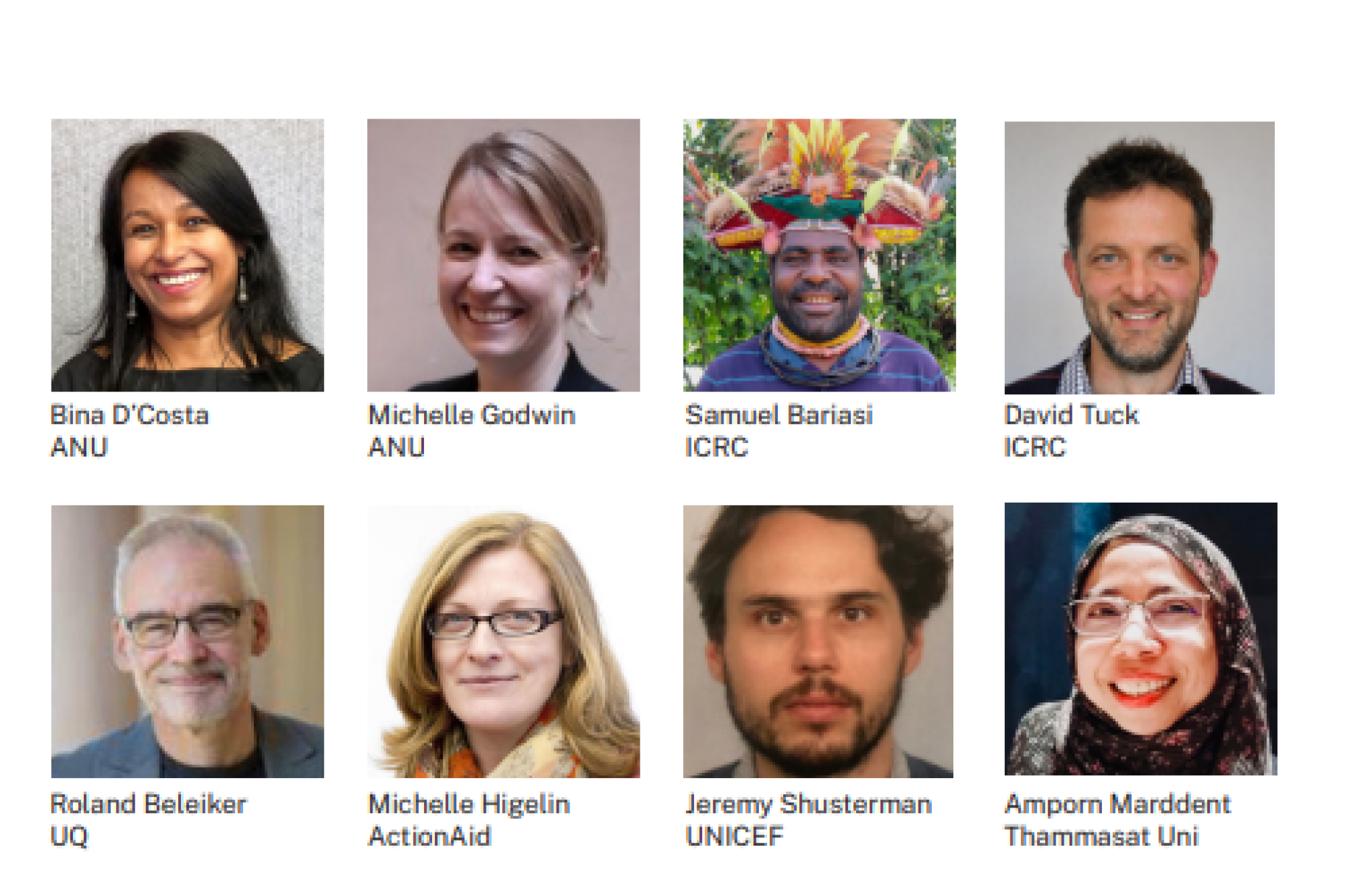

Research-led advocacy and practice with humanitarian agencies
(March 2025) ANU node is thrilled to partner with ActionAid Australia to join hands in research-led advocacy work on violence against women in the Pacific as part of CEVAW. The research/practice team canvased how to embed programming and practice considerations research workplan so that efforts are grounded in real practice from the outset. The group hopes to collaborate with the Pacific and Women’s Rights Climate Change Network. Carol Angir (Humanitarian Lead), and Michelle Higelin (Executive Director), shared their insights with students, leading displacement and protection scholars in a week of research engagement, planning, and teaching activities in Canberra.
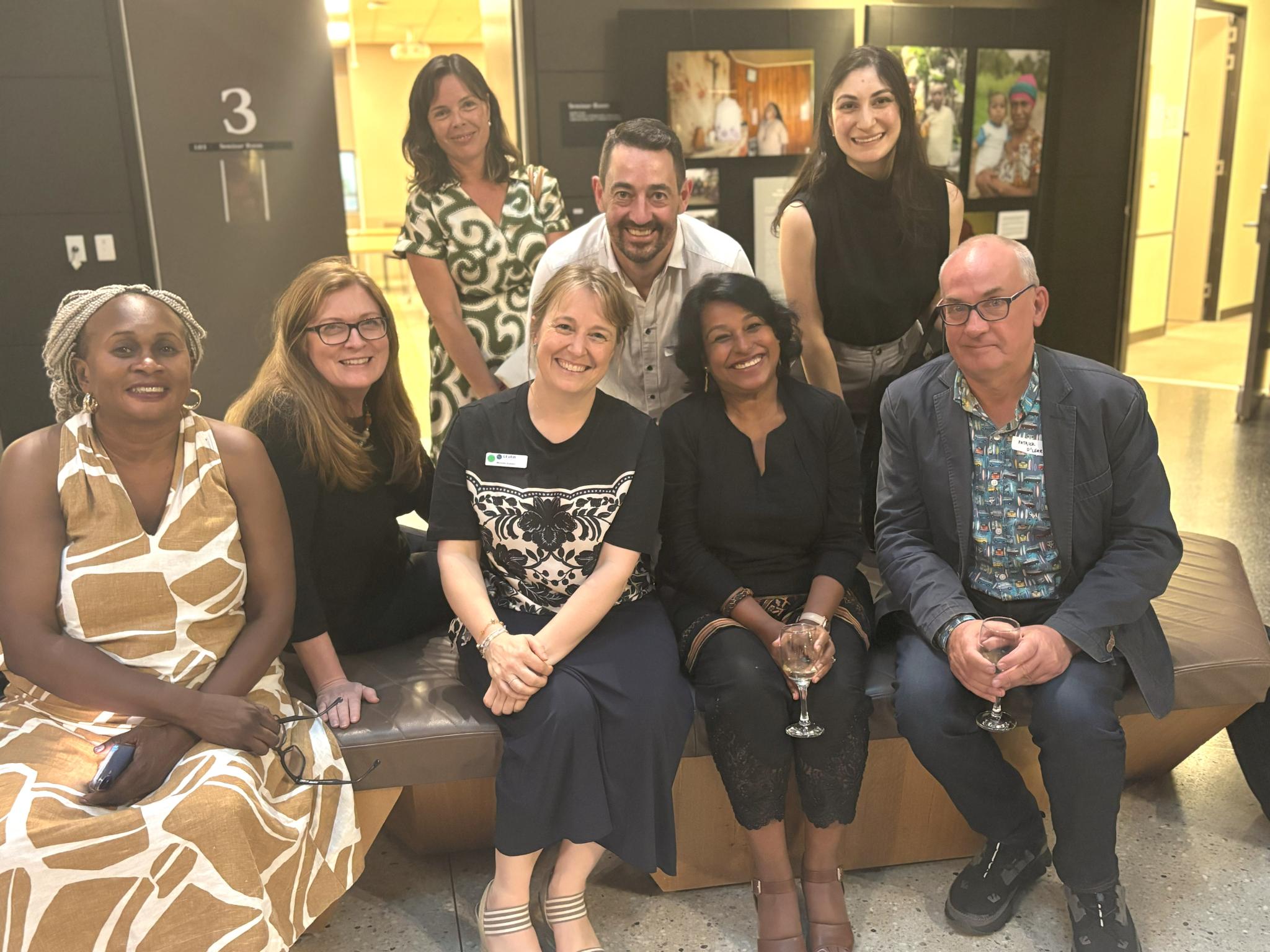
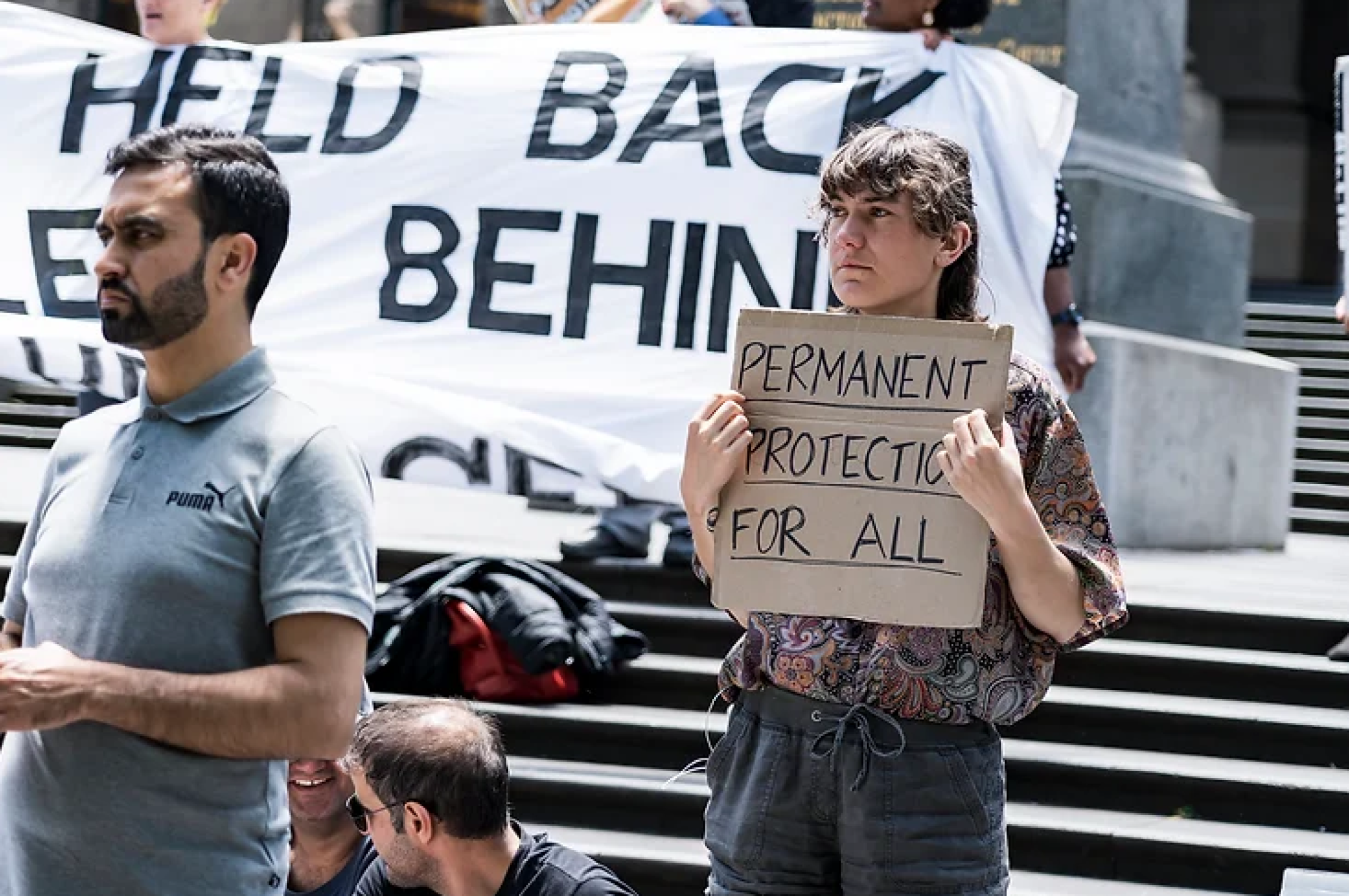
Blog: How the migration system is enabling violence against women in Australia
(Nov 2024) To mark the International Day for Ending Violence Against Women and Girls, ANU Researchers Zoe Bell, Bina D’Costa and Michelle Godwin supported by the Centre of Excellence for Violence Against Women published a short article at Blogal Studies, on how the migration system is enabling violence against women in Australia, and what change is needed to stop this. Today begins 16 Days of Activism against Gender-Based Violence, which ends with International Human Rights day on the 10 December 2024.
The team at ANU produced a short film introducing the research approach in the 'Displacement: Contextual and Temporal Vulnerability and VAW' project led by Dr. Zoe Bell.
Key researchers

Read more
Bina serves as a Chief Investigator on Australian Research Council initiatives and holds an ARC Future Fellowship covering topics related to Displacement, Humanitarian Protection and Violence.
At the height of Europe’s refugee emergency, she moved to the UNICEF Office of Research-Innocenti to build its Migration and Displacement program (2016-2018). As a UN staff, in collaboration with multiple agencies and communities, she led research-led policy advocacy in the Horn of Africa, East Africa, Jordan, Lebanon, EU responses to European Refugee Emergency, and served in the 2017 UN Rohingya Emergency First Response Mission in Cox’s Bazar, Bangladesh.
She has provided inputs and technical advice to witness protection and victim support mechanisms at the International Criminal Tribunal for Rwanda (ICTR), Office of the United Nations High Commissioner for Human Rights (OHCHR), International Crimes Tribunal, Bangladesh, and various civil society justice initiatives in Pakistan, Sri Lanka and Cambodia.
She has published many essays and seven books, including Nationbuilding, Gender and War Crimes in South Asia and Children and the Politics of Violence. She received the Distinguished Alumni Award (Peace Studies), University of Notre Dame, United States in 2020 and the Ann Tickner Award from the International Studies Association (ISA) in 2022.
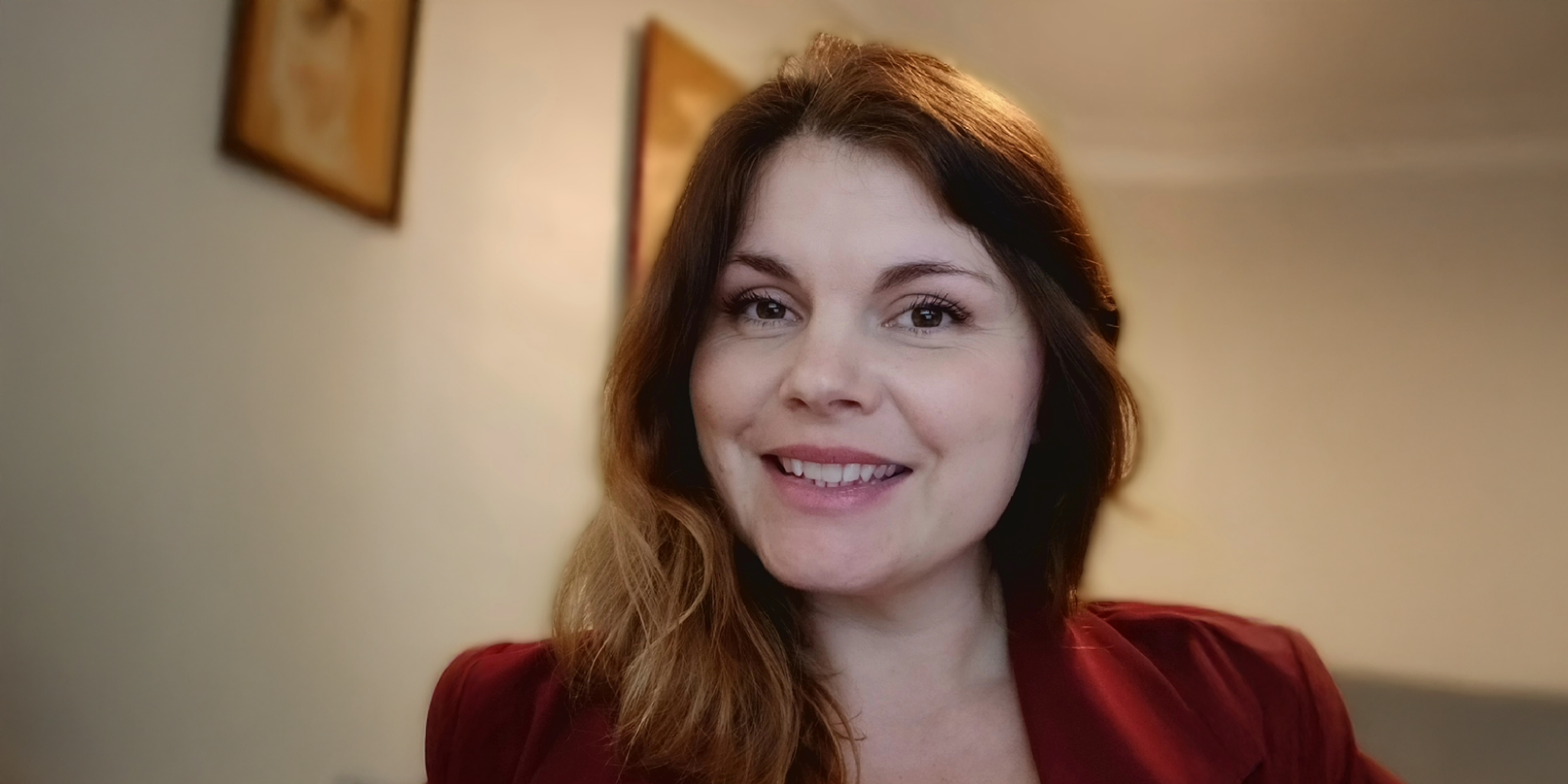
Dr Zoe Bell
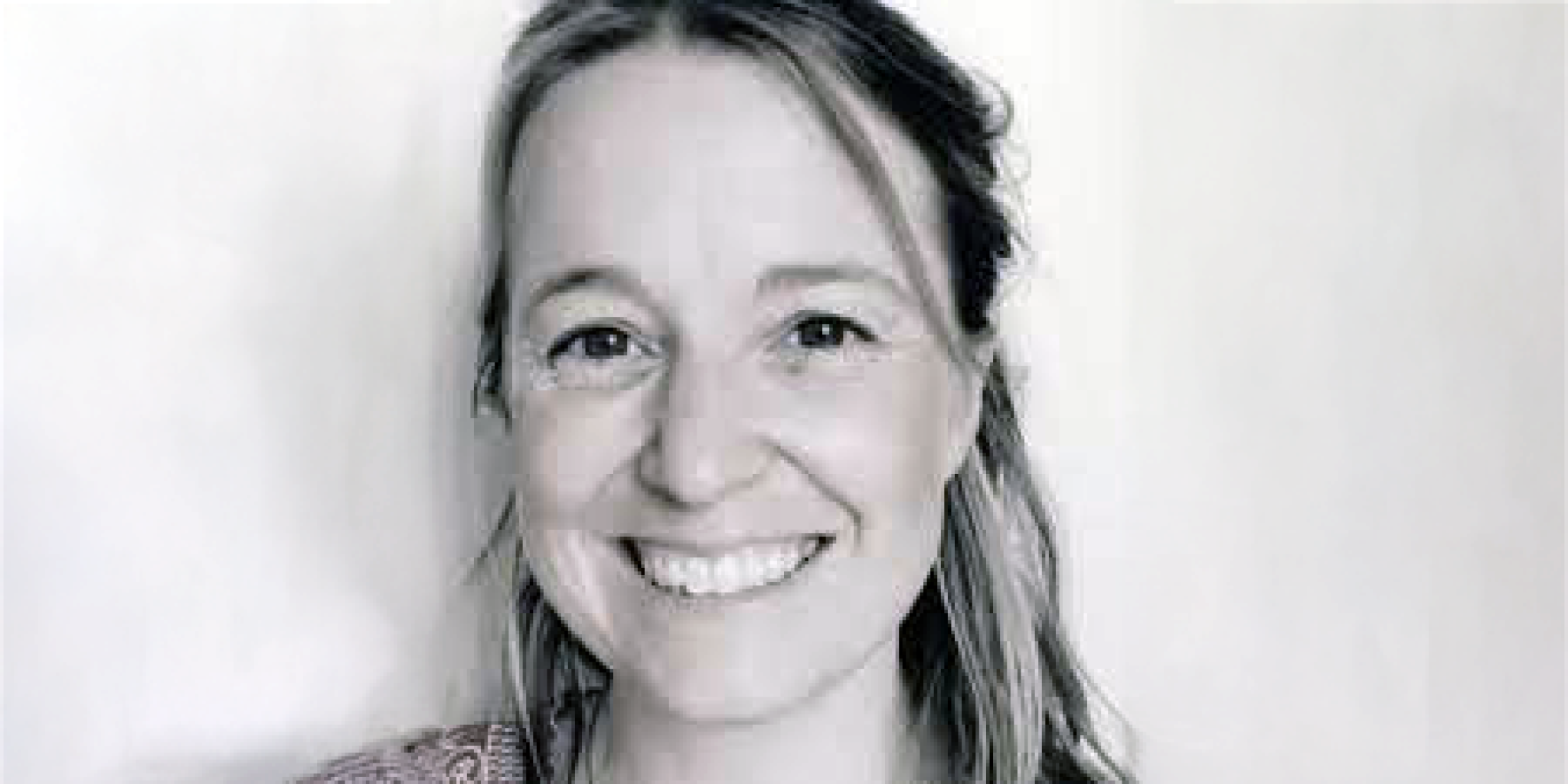
Michelle Godwin

Dr Charlotte Grech-Madin
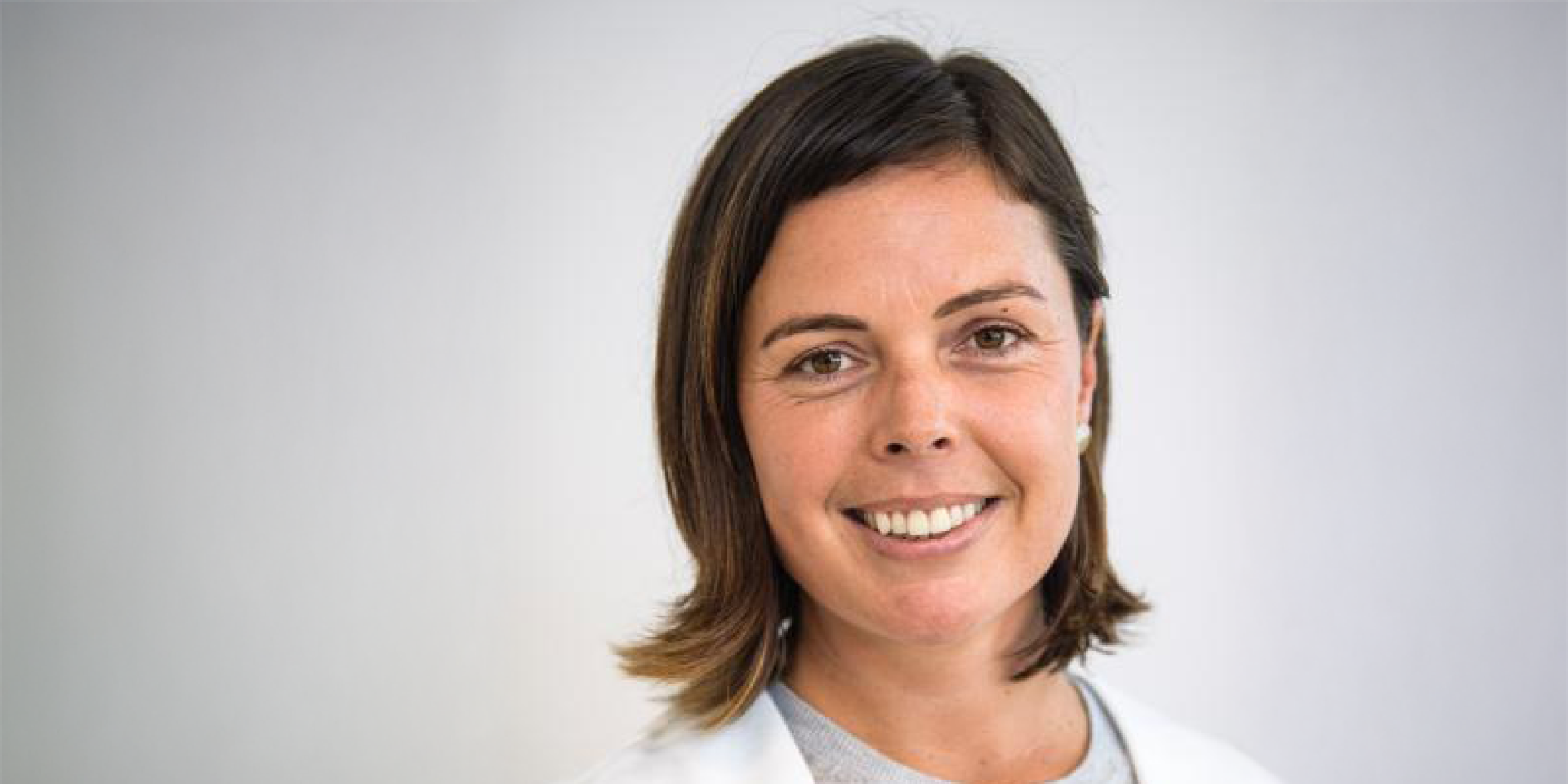
Amra Lee
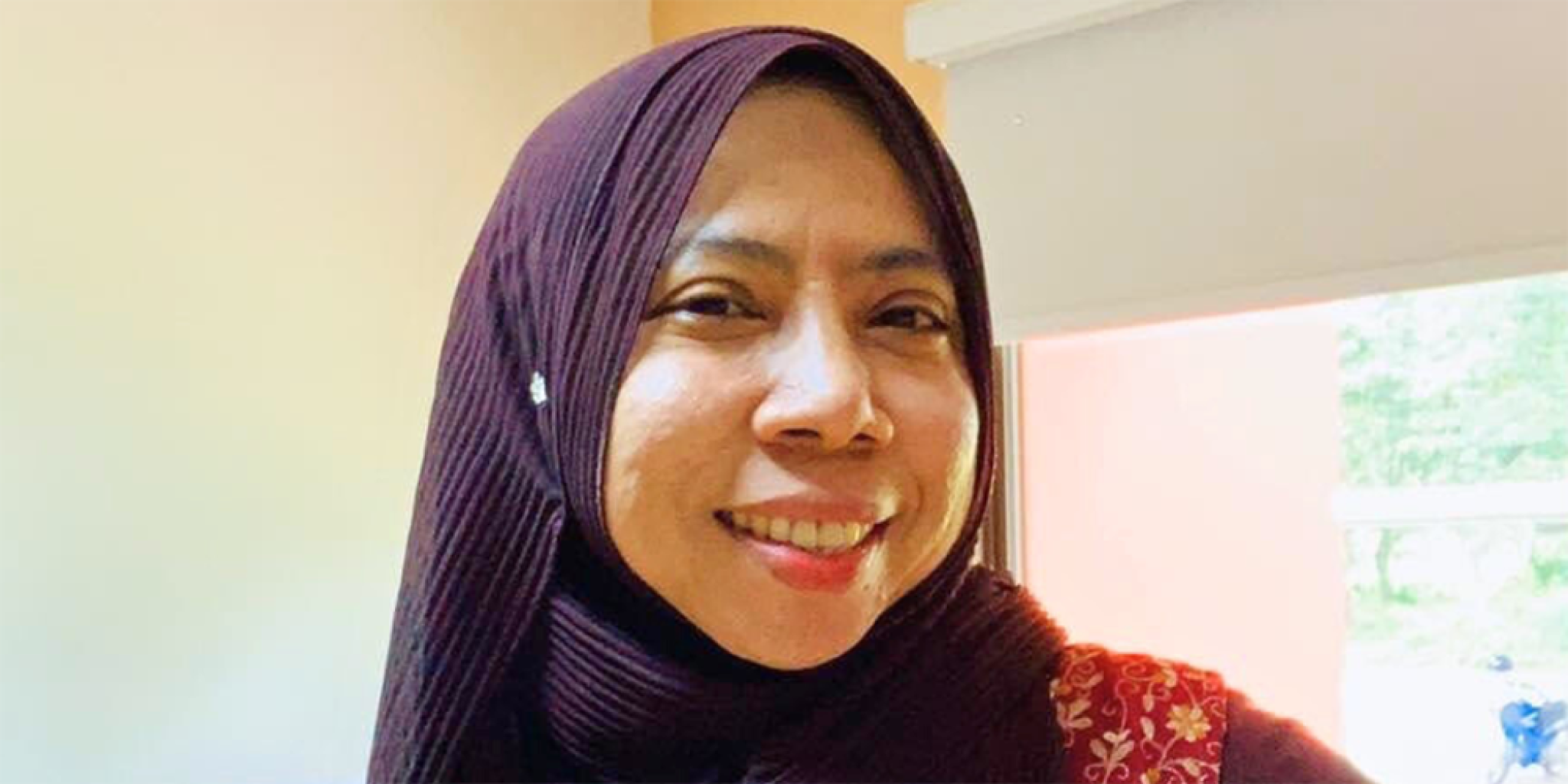
A/Prof Amporn Marddent
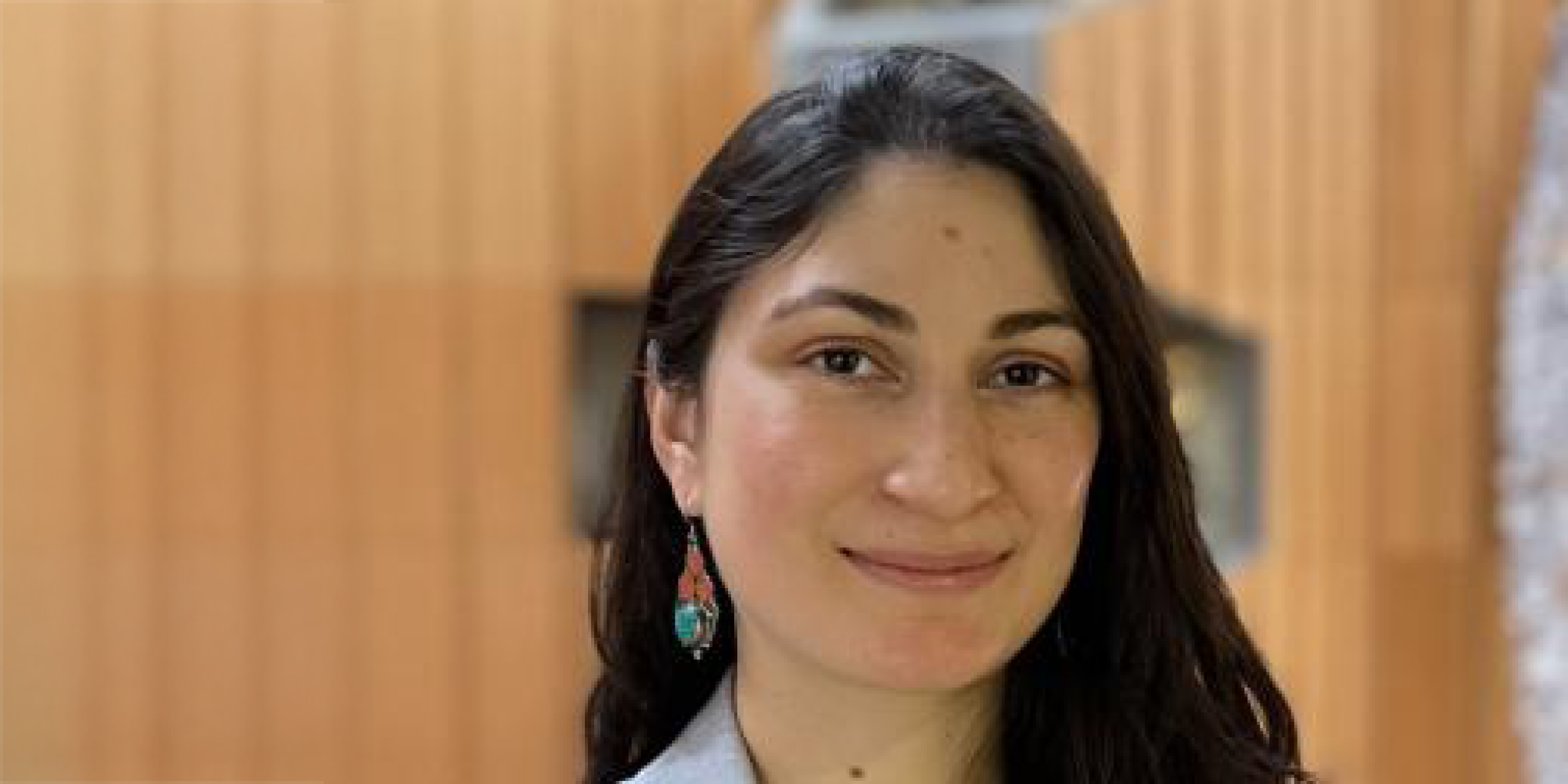
Aryana Mohmood
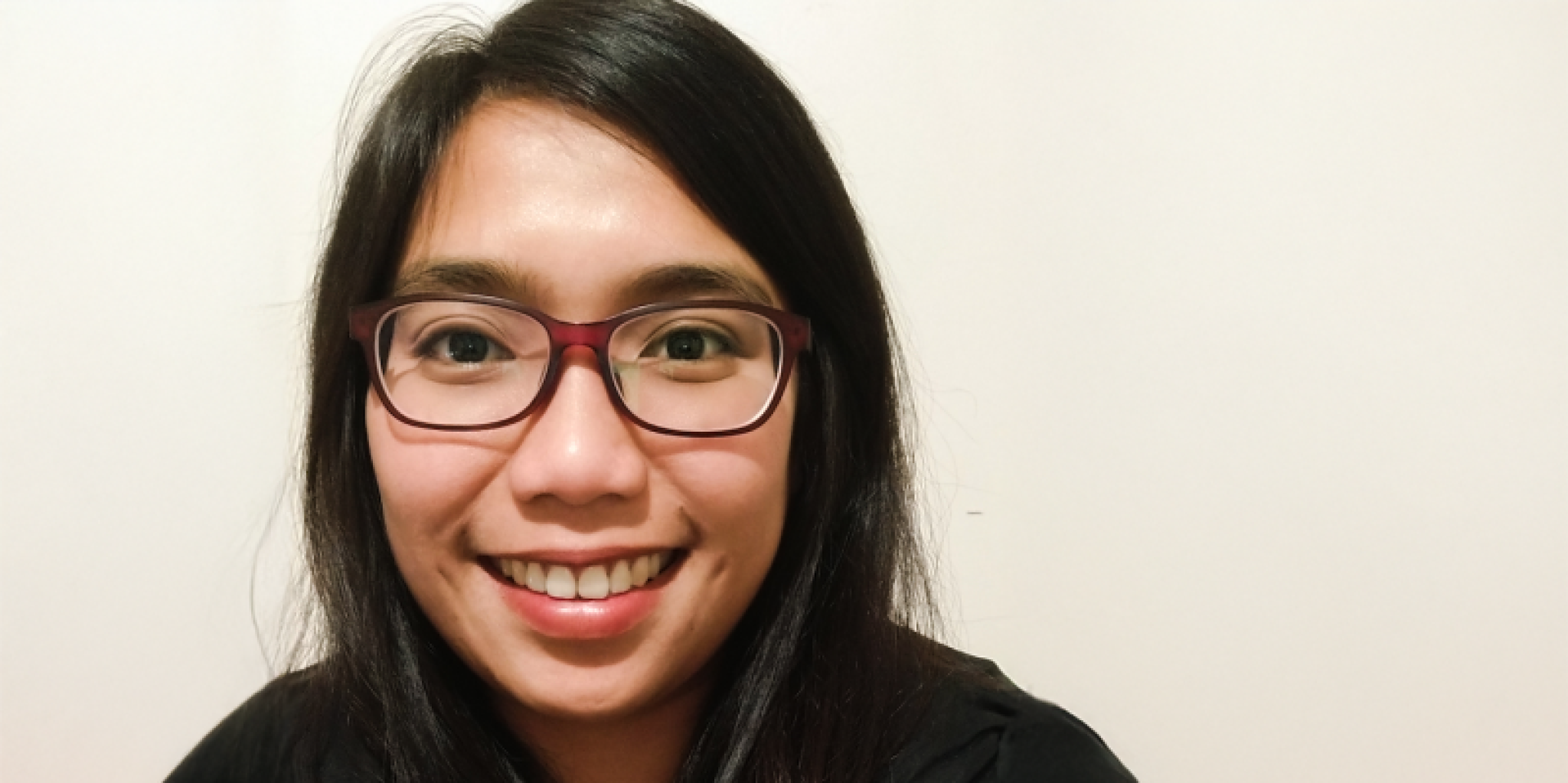
Sorang Saragih
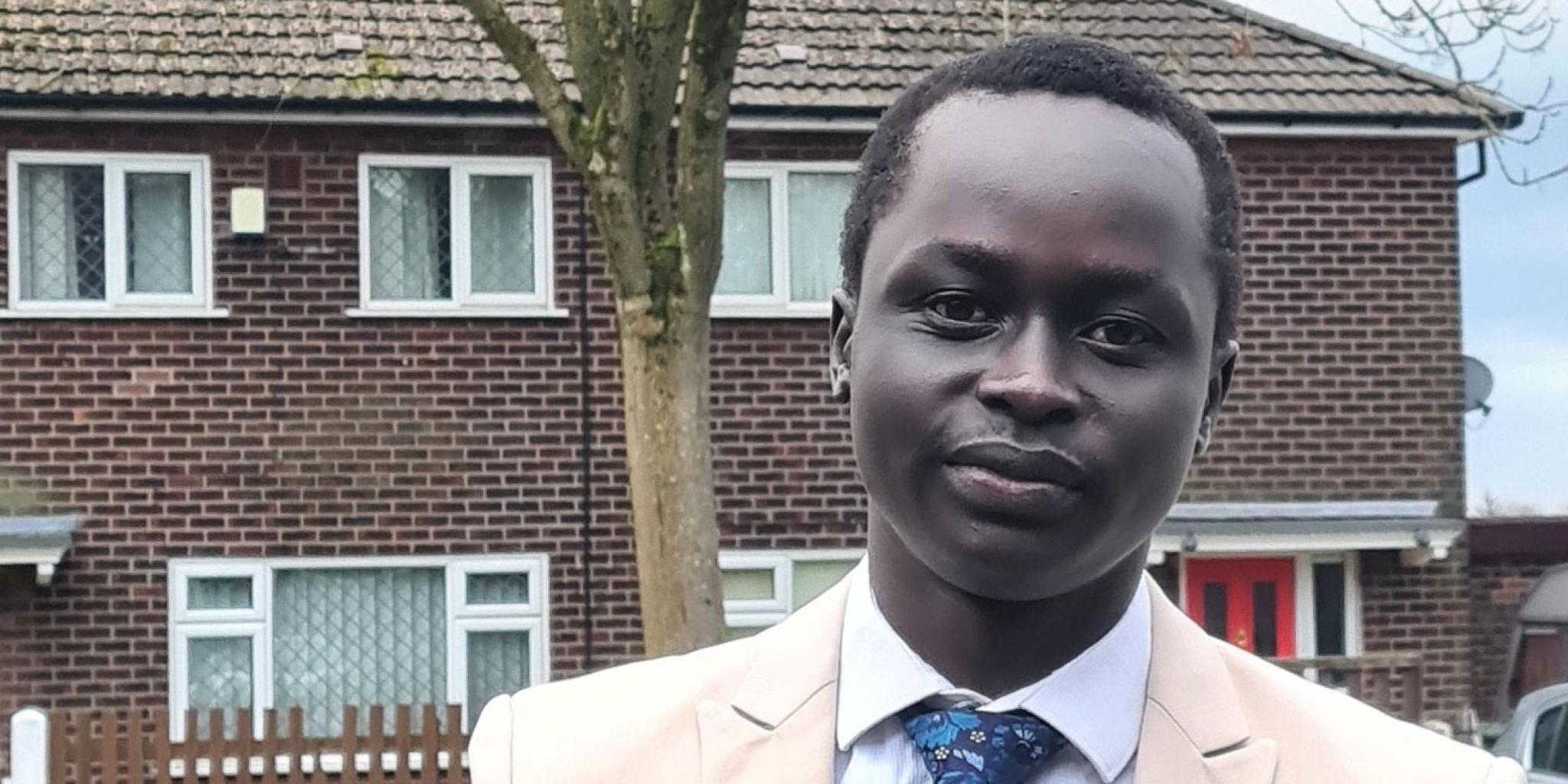
Francis Kelei
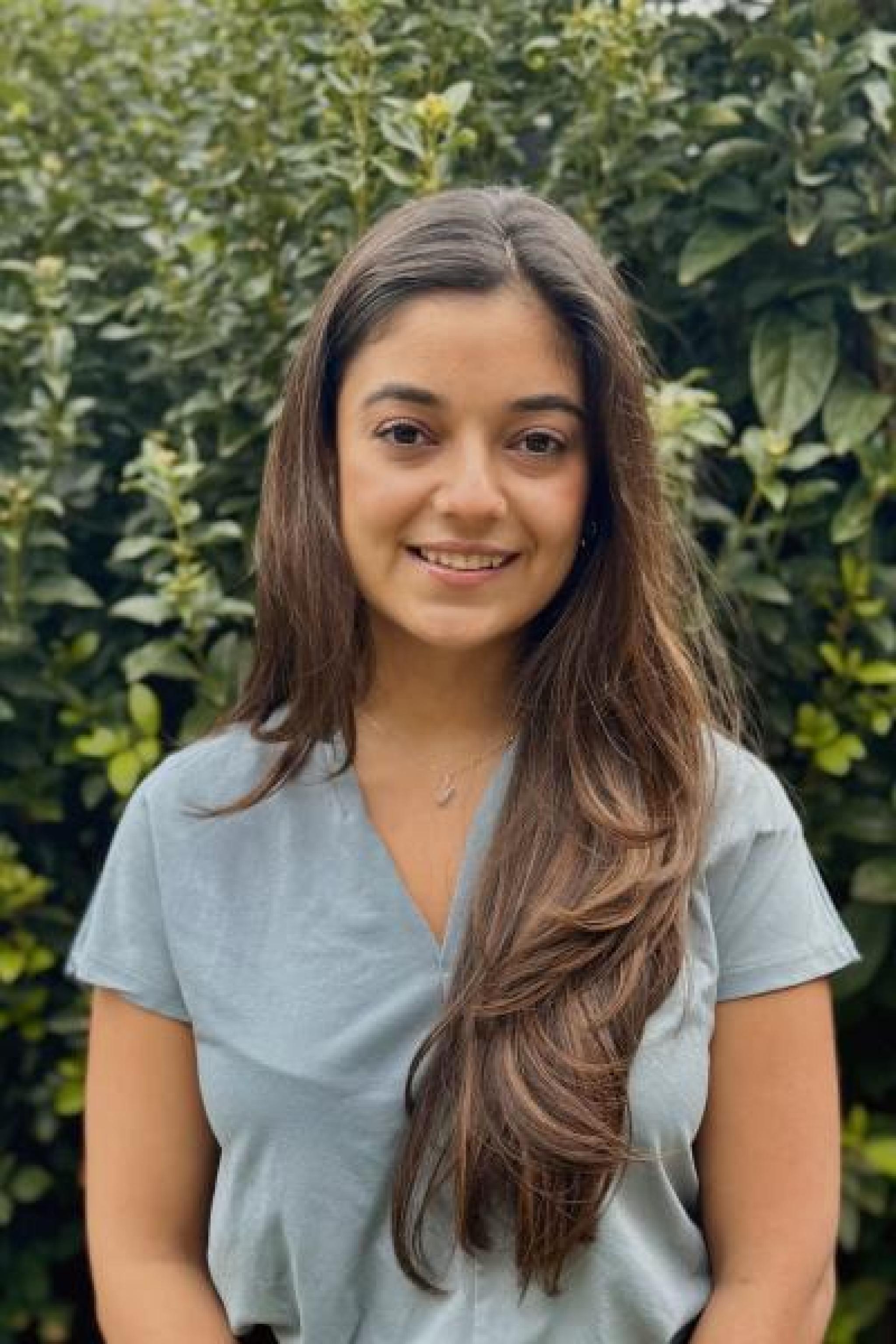
Shivangi Seth
Associate Investigators
Collaborators in Migration and Trafficking research stream led by Bina D’Costa as part of the ARC Centre of Excellence on Violence Against Women.
See the CEVAW website for other affiliated researchers and partners.

Prof Kirsten Ainley
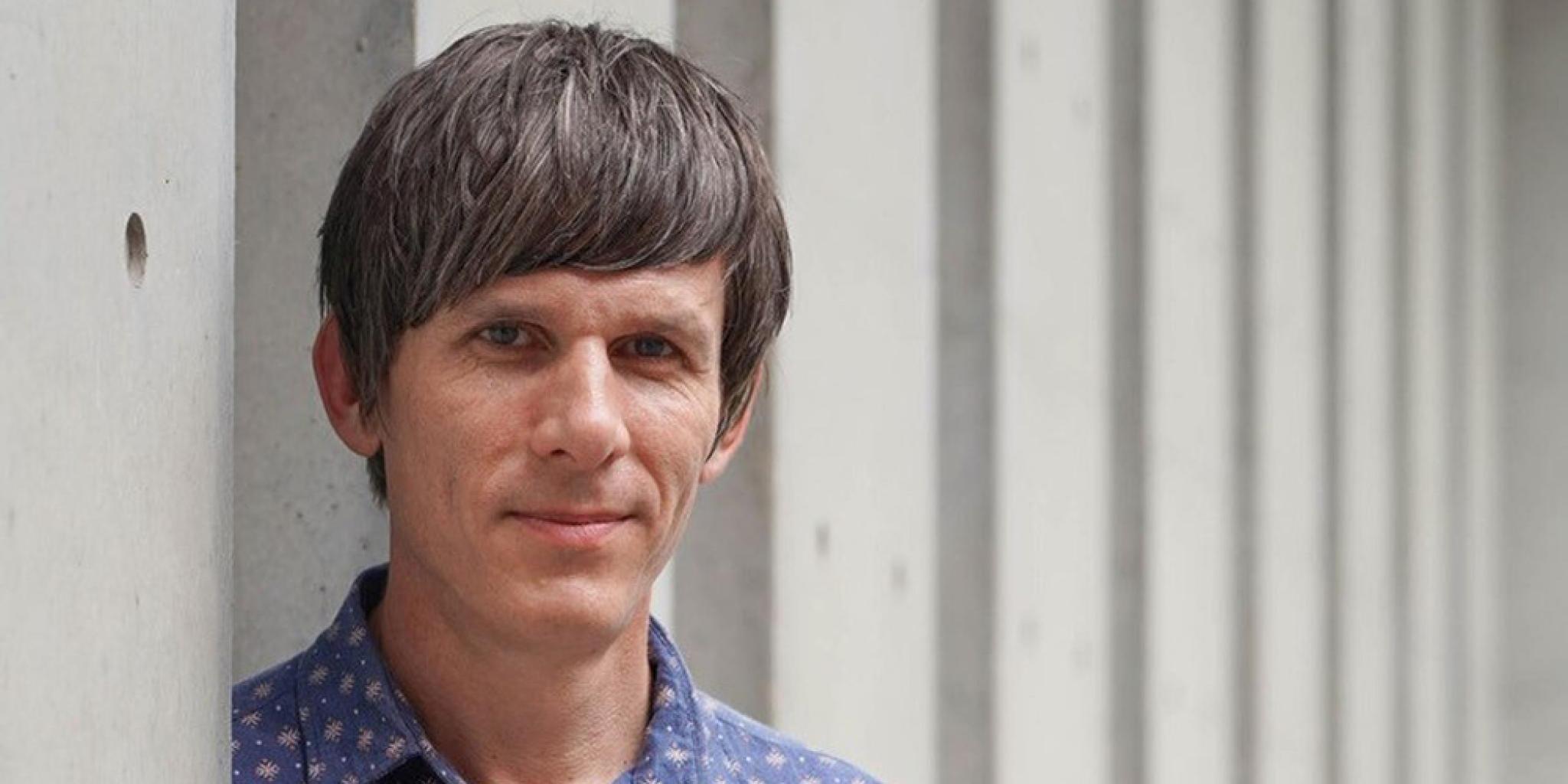
A/Prof Nick Cheesman
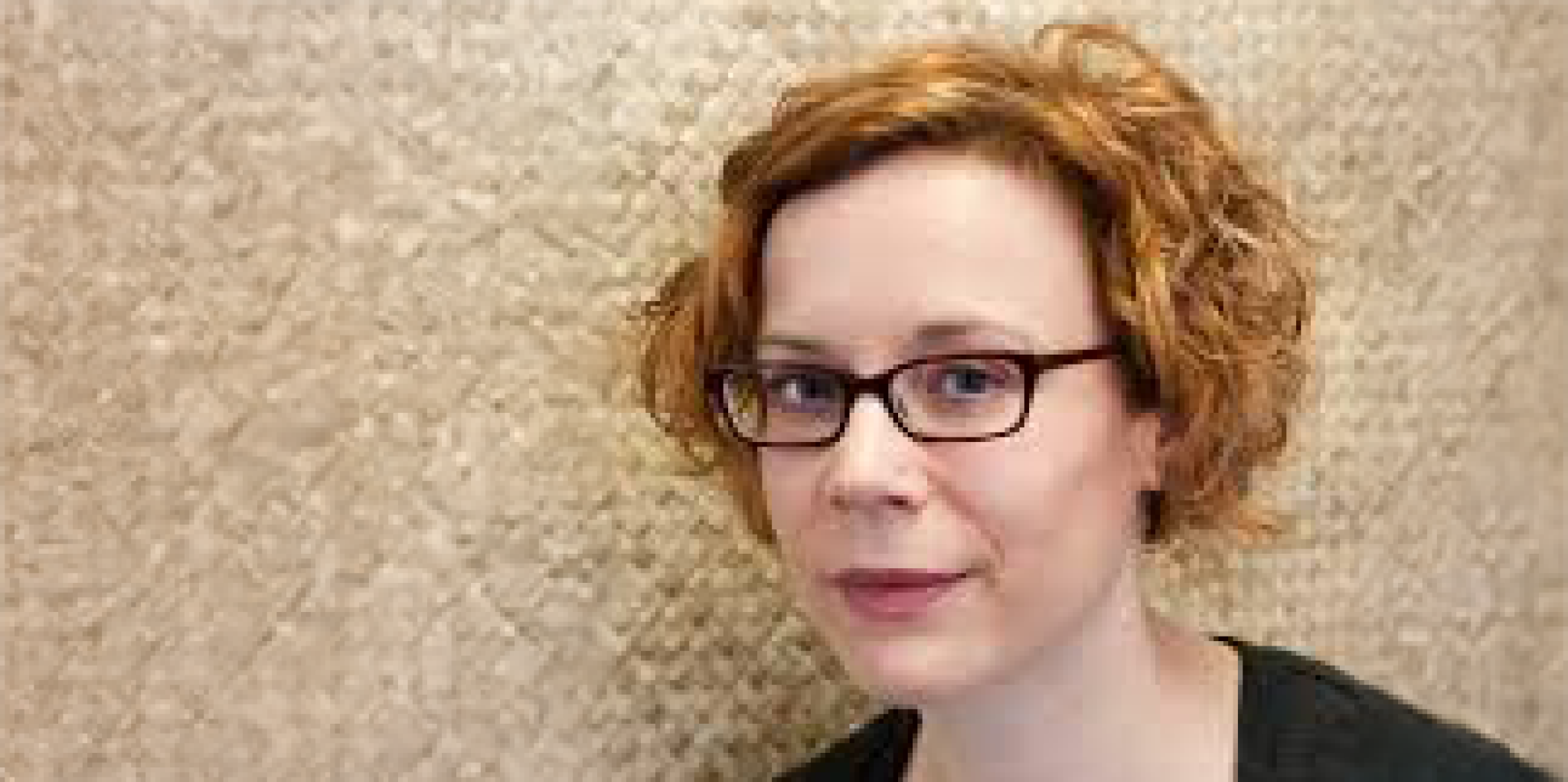
Prof Rebecca Monson
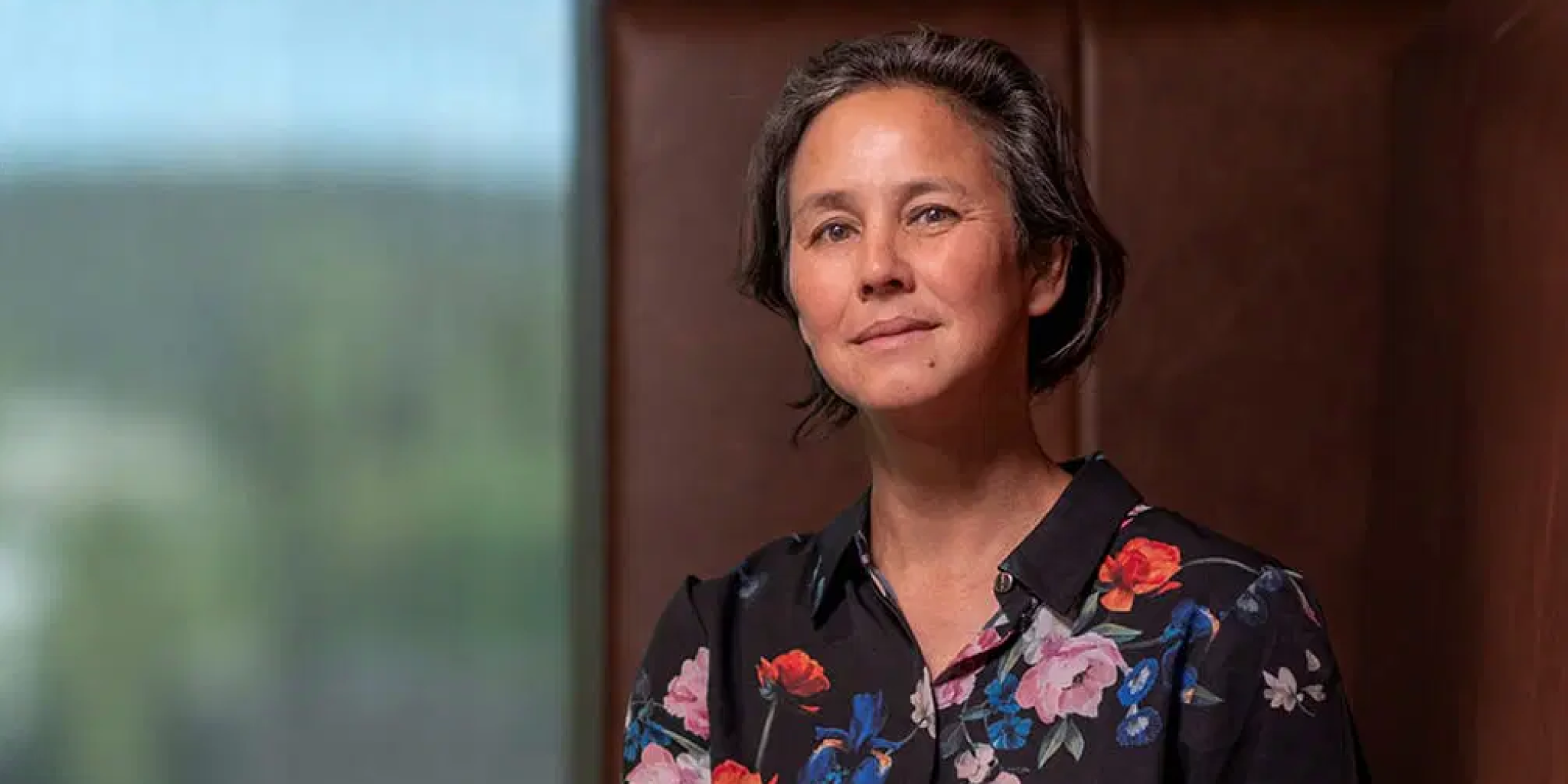
Prof Michelle Ryan
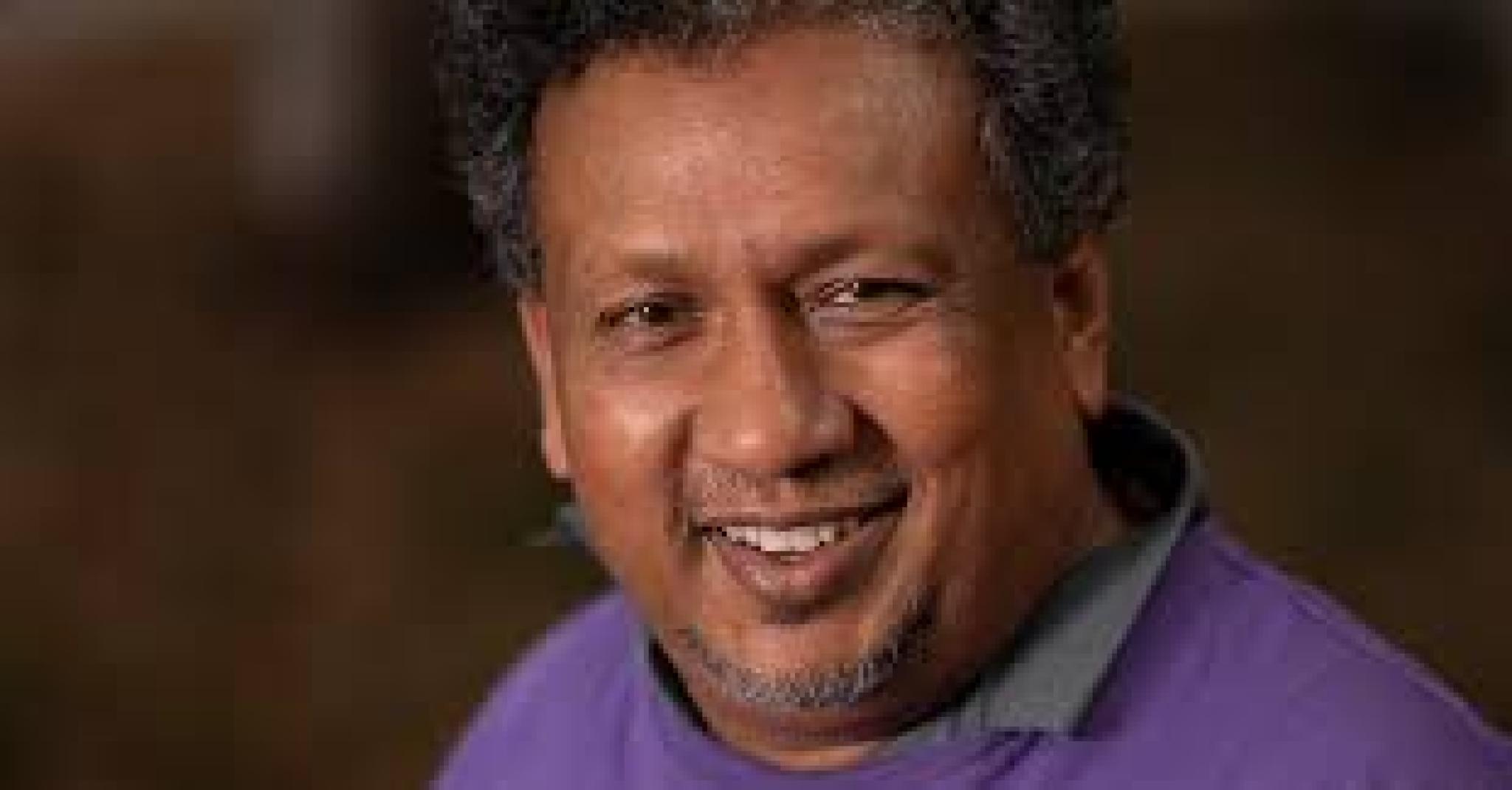
Prof Asmi Wood
Latest publications
- B. D’Costa, M. Godwin, C. Grech-Madin, Z. Bell. (2026). Violence, vulnerability and protection on the move: interrogating the intersection of scholarship and practice on displacement. Australian Journal of International Affairs.
- Grech-Madin, C. (2025). Murky Waters of War: Toward a Clearer Conceptualization of Water as a Weapon. Environment and Security. Sage Journals.
- Lee, A. (2025). Air-dropping food into Gaza is a ‘smokescreen’ – this is what must be done to prevent mass starvation. The Conversation.
- A. Lee. (2025). Suffering in Gaza reaches ‘new depths’ – Australia condemns ‘inhumane killing’ of Palestinians.The Conversation.
- A. Lee. (2025). Israel’s new aid delivery system for Gaza is sparking outrage. Why is it so problematic?. The Conversation.
- A. Lee, F. Gray, & B. D’Costa. (2025). What we owe the children of Gaza. LSE Human Rights Blog.
- Z. Bell. (2025). Australian Asylum Seeker Policy from Three Perspectives. Refuge: Canada’s Journal on Refugees.
- B. D'Costa. (2025). Displacement of Children in Humanitarian Emergencies: Reflections from the Frontline. Critical Studies on Security.
- Z. Bell, B. D’Costa, & M. Godwin. (2024). Perpetuation of violence and coercive control: how the migration system is enabling violence against women in Australia. University of Gothenberg Blog.
- Z. Bell, et al. (2024). Where Research Meets Community Building. ARWDO, CEVAW & ANU.
- B. D'Costa, & S. Parashar. (2024). The Battle Within: Which Women, What Peace and Whose Agenda in South Asia? In B. D'Costa & S. Parashar (Eds.), Mapping feminist international relations in South Asia (1st ed., pp. 11). Routledge India.
- A. Lee. (2024). Civilians in conflict need Australia’s attention, and they need it now. ANU Policy Brief.
- A. Lee, & F. Gray. (2024). History is watching – we must protect the right to protest and academic freedom. Right Now.
- F. Gray, & A. Lee. (2024). Beyond words: Australia must act to protect civilians in Gaza and Lebanon. The Strategist.
- Clark, H, Friel, S., D'Costa, B. and Hunter, A. (2024). Helen Clark on how to build a healthier future for all.
